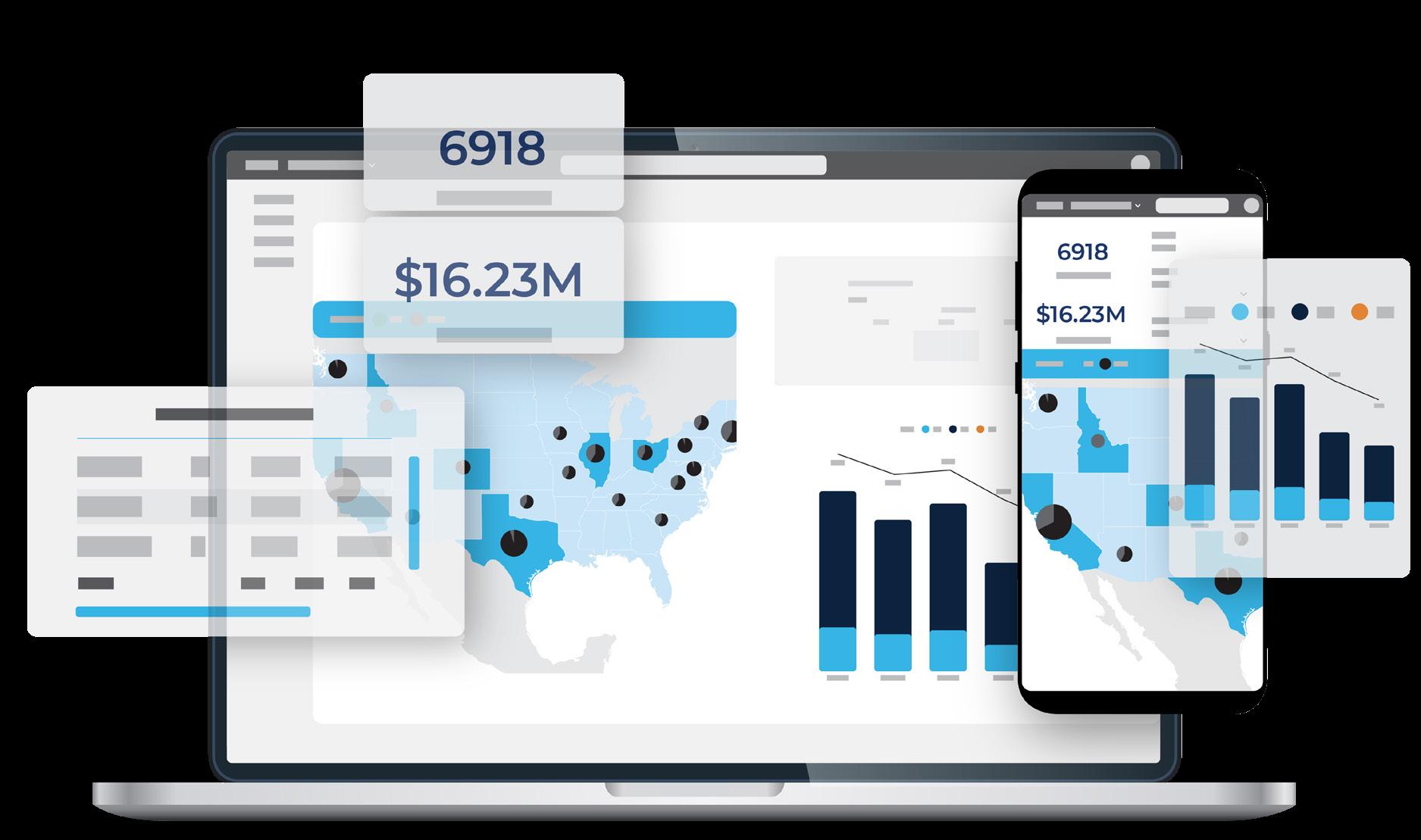Sealed With Strategy

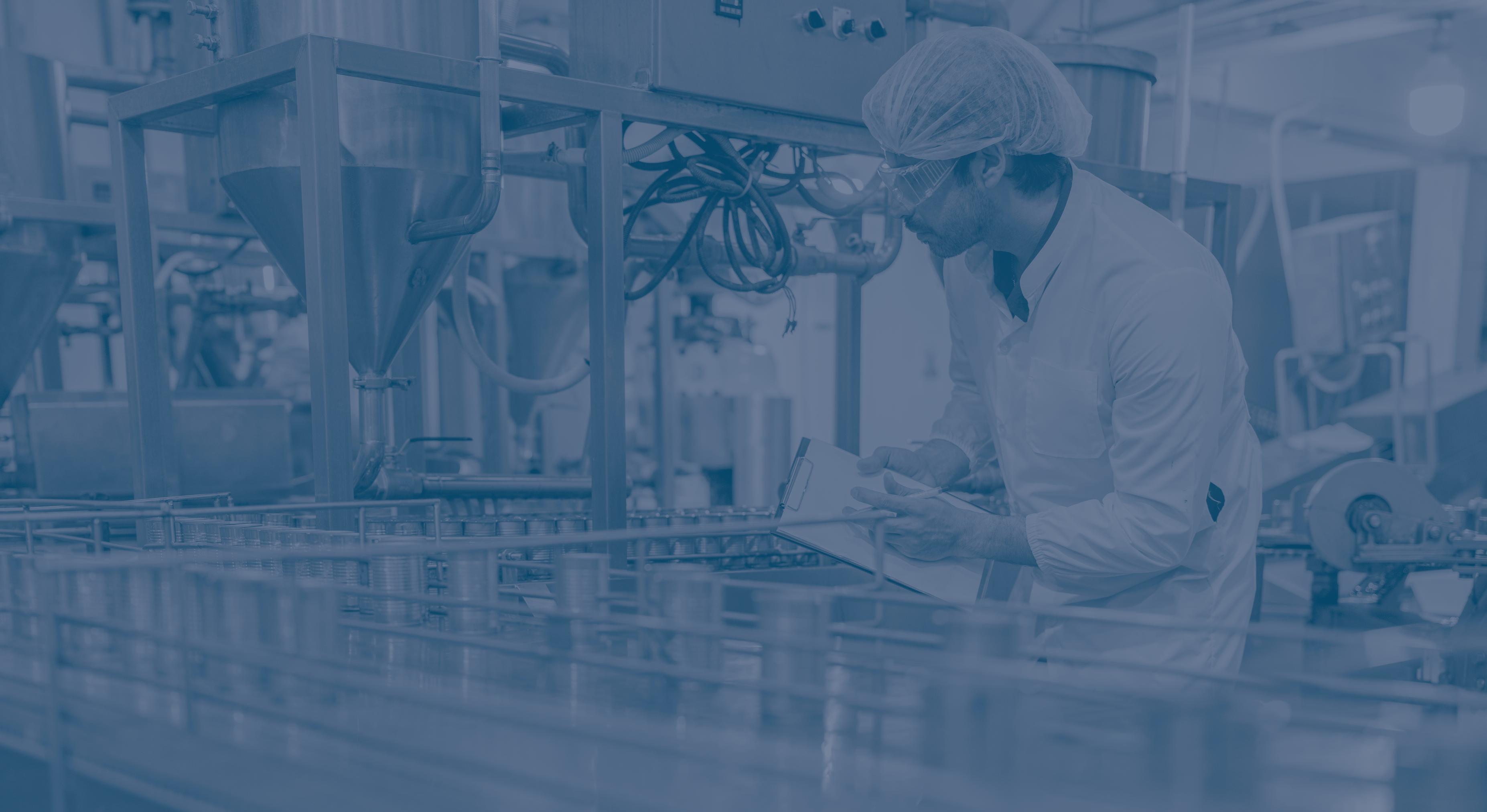


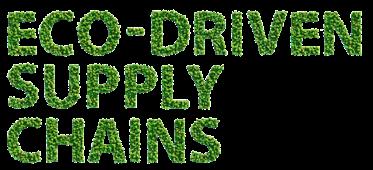

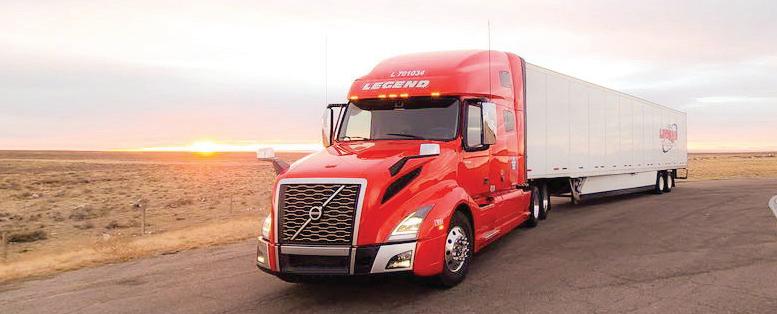








► Target Asset Carrier of the Year 2023
► General Mills Gold Dry Carrier of the Year 2024
► Ecolab Breakthrough Carrier of the Year 2023
1200+ Power Units and 5000+ Trailers (Over 4:1 trailer ratio)
25% of total fleet is Hazmat Certified
• Specialized fleets for our customers’ unique or expedited needs
• Fleets dedicated regions and routes to service one-way lanes with efficiency
• 36% of total 2023 Legend miles were powered by biodiesel and renewable diesel
• EV fleet dedicated to servicing the Southern California area efficiency
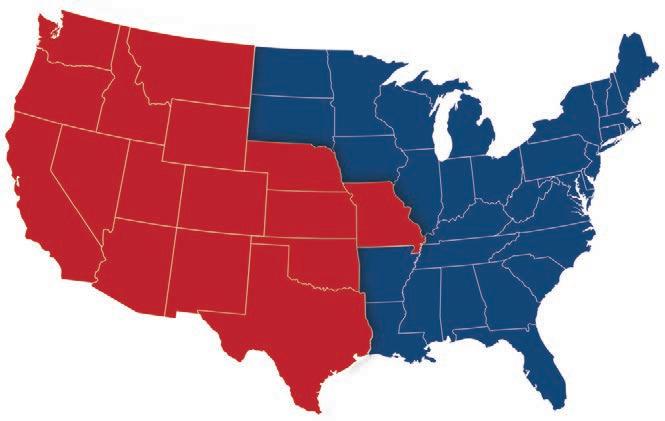
Our goals in the Food and Retail markets are to provide services in all areas that meet the demands of our Customers.



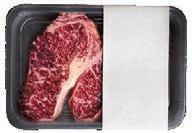
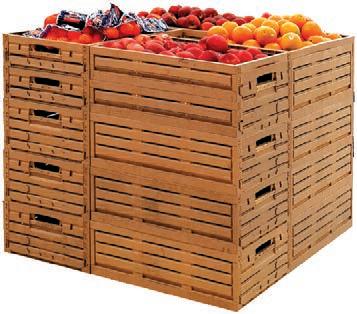
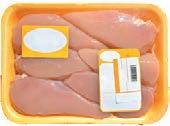
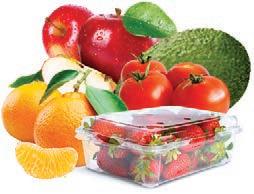
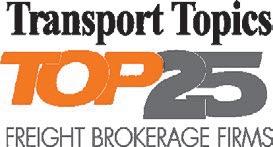
» Refrigerated & Ambient Logistics Fresh to Deep Frozen (-20º Capabilities)
» Reefer commodities serviced include fresh & frozen foods, meat, dairy, produce, ice cream, pharmaceuticals and plants/flowers.
» Team/Expedited Services
» Food Grade, Clean Trailers & Knowledgeable Experienced Drivers
» Highly Experienced Logistics Team with 5-20+ Years’ Experience
» Warehousing & Pick/Pack Services
» Detailed KPI reports & Data Analytics
» Drop Trailer, Shuttle & Dedicated Programs
» Standing Appts with Most Food DCs & Big Box Retailers
» DSD & Private Fleet Support
» Realtime Track & Trace
» Drayage Services
» LTL Capabilities
» 24/7 Operations
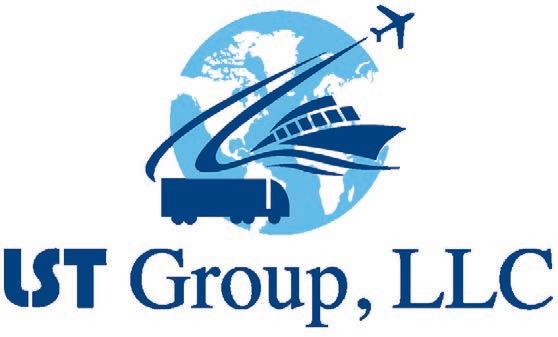
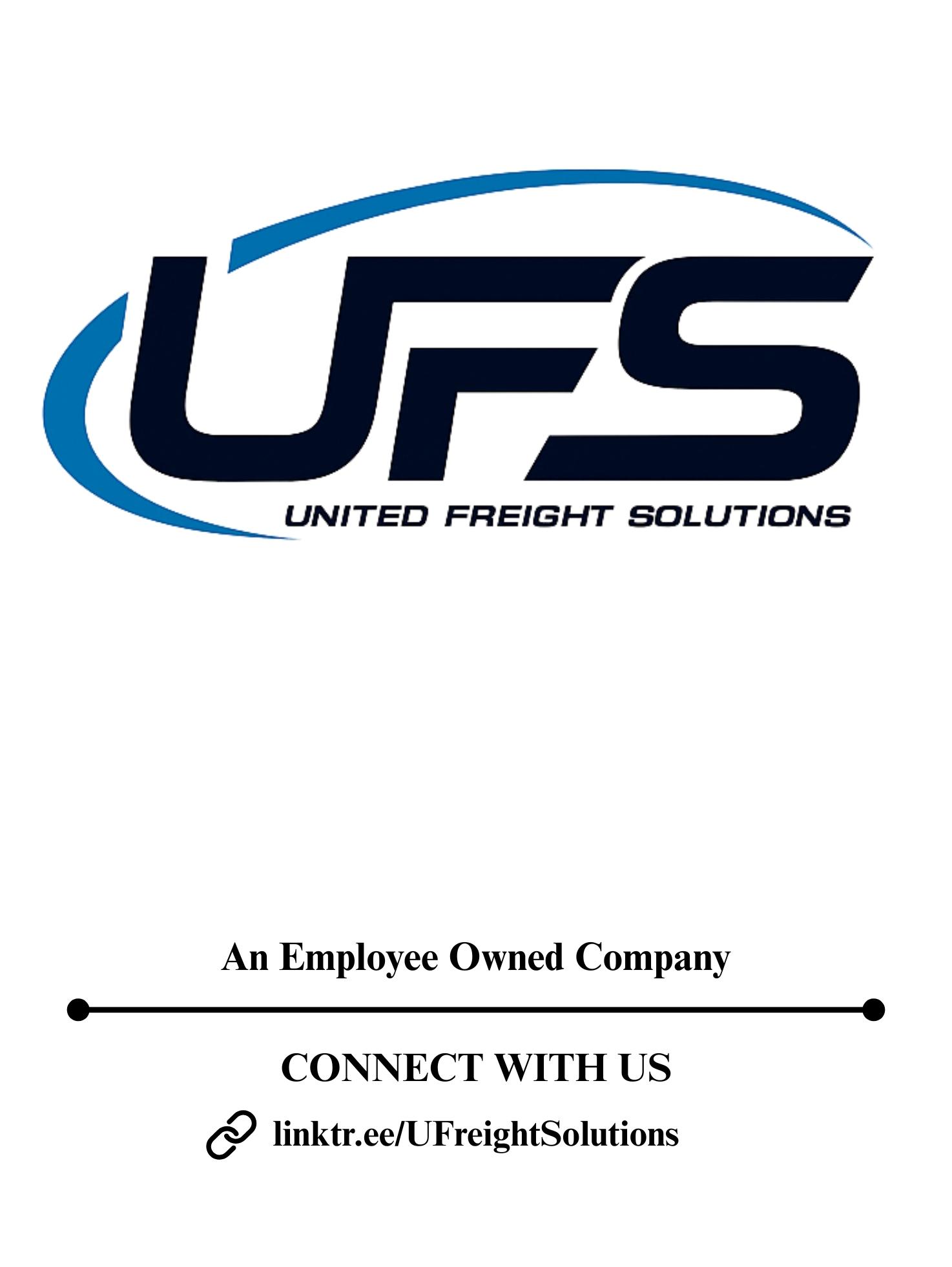
EDITION 3 • 2025
Published three times a year for:
Food Shippers of America
1144 East State Street, Suite -288A Geneva, IL 60134
847-302-1496
executivedirector@foodshippers.org www.foodshippers.org
Published by:
MindShare Strategies, Inc.
Ponte Vedra Beach, FL 32004 USA
952-442-8850 www.MindShare.bz
Billing Address: MindShare Strategies, Inc. P.O. Box 843 Springfield, TN 37172 USA
Group Editorial Director and Publisher: Brian Everett, ABC 952-442-8850 x201 brian@mindshare.bz
Editorial Content This Edition: Courtney Bloom, Faith Boone, Brian Everett
Advertising Sales: Cassidy Mullins
952-442-8850 ext. 215 cassidy@mindshare.bz
Alec Stifter 952-442-8850 x218 alec@mindshare.bz
Design/Production Manager: Todd Pernsteiner 952-841-1111 todd@pernsteiner.com
Accounting/Administration/Circulation: Melanie Haley 423-356-4154 accounting@mindshare.bz
Marketing/Communications: Brynn Aiello 952-442-8850 x220 brynn@mindshare.bz
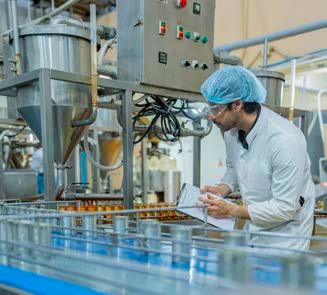



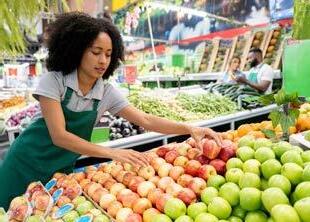

Brian Everett, Publisher Senior Partner, MindShare Strategies 952-442-8850
x201
brian@mindshare.bz
The most effective supply chains are no longer managed as a collection of separate functions. Instead, they are being redefined as an integrated system where every component— from packaging, sustainability, talent management and cybersecurity to inbound logistics, and warehousing and distribution—serves as a strategic pillar.
Together, these pillars are reshaping how food companies build resilience, drive efficiency, and position themselves for long-term growth. Each of these is covered extensively in this edition of Food Chain Digest
Packaging, often the first touchpoint of the supply chain, has evolved far beyond protecting products in transit. It now reflects sustainability goals, cost efficiency, and consumer expectations. Innovations like lightweight, recyclable, and smart materials reduce waste, cut freight costs, and streamline handling. For companies like Unilever, Hershey, Kraft Heinz, Nestlé USA, and Keurig Dr Pepper, packaging is both a supply chain lever and a brandbuilding tool (see Sealed With
Strategy: The Intricate Science of Packaging, starting on page 6).
Sustainability has shifted from mission statements to measurable supply chain actions. Investments in alternative-fuel fleets, route optimization, and renewable energy are now essential for meeting consumer, investor, and regulatory expectations. Once strictly about compliance, sustainability is now a competitive advantage (see Eco-Driven Supply Chains: Delivering More Than Goods starting on page 11).
People power the supply chain, making talent a key differentiator for food companies. Firms are investing in culture, career paths, and digital training to strengthen performance and spark long-term innovation (see Playbook: Effective Supply Chain Talent Strategy starting on page 16).
As food supply chains go digital, cybersecurity is now as critical as physical security. Companies face growing risks from ransomware, data breaches, and disruptions. Protecting IoT devices and freight platforms demands strong cyber hygiene, partner collaboration,
and constant monitoring—since one breach can halt operations (see Cybersecurity in Food Supply Chains starting on page 26).
Inbound transportation is a hidden source of cost and complexity, with fuel volatility, carrier limits, and supplier coordination challenges. By consolidating loads, using tech, and partnering with peers, food companies are boosting efficiency, visibility, and savings while reducing production risks (see Inbound Logistics: From Pain Point to Strategic Advantage starting on page 31).
Of course, check out our Food Shippers Warehousing and Distribution Buyer’s Guide, a critical resource listing specialists in warehousing and distribution.
Food companies that treat these areas as strategic pillars—not isolated priorities—are building the smarter, stronger supply chains needed to meet rising consumer expectations, safeguard brand trust, and compete in a world of constant change.
Enjoy this edition of Food Chain Digest!

From refrigerated and dry truckloads to warehousing, and brokerage, we streamline your logistics under one trusted partner.
BUILT ON TRUST, DRIVEN BY RESULTS.
As a family-owned provider with 650 tractors & 900 trailers, Leonard’s ensures reliable, cost-effective logistics.
FOOD-GRADE WAREHOUSING
TOTAL SUPPLY CHAIN CONFIDENCE.
Innovative, climate-secure warehousing with boxcar convenience to meet the highest food safety standards.
TECH-DRIVEN, HUMAN-POWERED
SMART TECH, SMARTER TEAMS.
AI- I ntelligent routing combined with human expertise delivers adaptive and efficient service in any market.

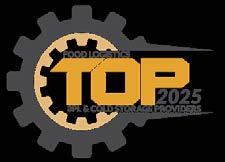
TRUSTED BROKERAGE FLEXIBILITY
EXPERT, ADAPTIVE SOLUTIONS.
Brokerage experts that combine experience, predictive tools, and personalized service.
SAFETY & AWARDWINNING LEADERSHIP

YOUR CARGO’S SAFETY, OUR STANDARD.
Championing award-winning safety, Leonard’s makes safety more than policy— it’s culture.
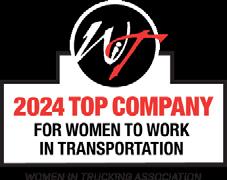
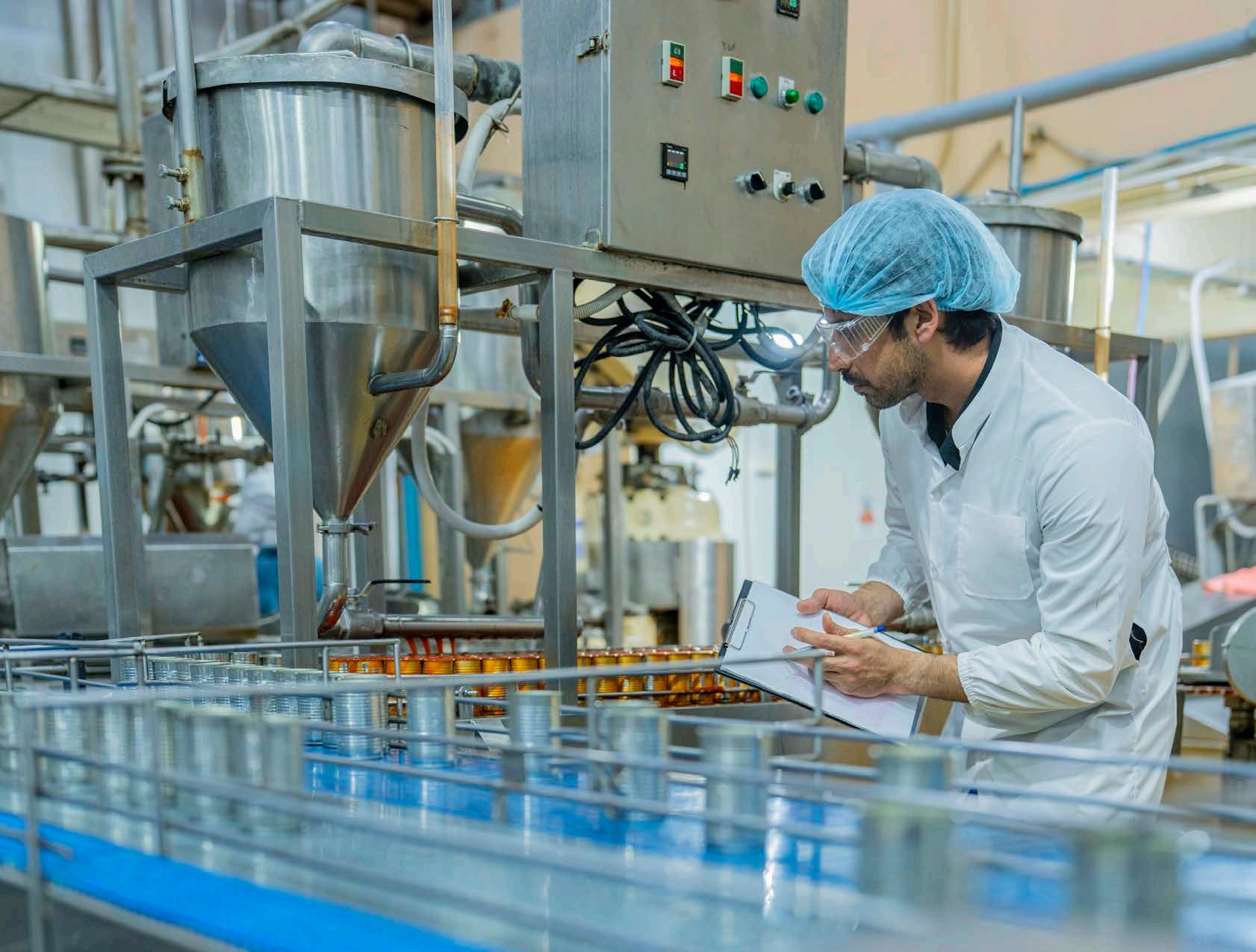

Food packaging is far more than a container—it is a critical component of the supply chain that ensures products move safely and efficiently from production to consumption. Packaging protects products, maintains freshness, and maximizes food safety.
For perishable goods especially, packaging is the first line of defense against damage, contamination, and spoilage during storage and transportation.
Beyond protection, packaging enhances logistics efficiency. Standardized shapes and durable materials allow products to be stacked, handled, and shipped with minimal risk of damage. Modern packaging often incorporates technology such as barcodes, QR codes, and RFID tags that enable precise tracking and monitoring throughout the food chain. This not only streamlines
operations but also allows for quick responses to recalls or disruptions, protecting both consumers and brands.
Another vital function of food packaging is communication. Labels provide consumers and regulators with essential information, such as expiration dates, nutritional content, and allergen warnings. In doing so, packaging serves as both a compliance tool and a trust-building mechanism, ensuring transparency and meeting regulatory standards across diverse markets.
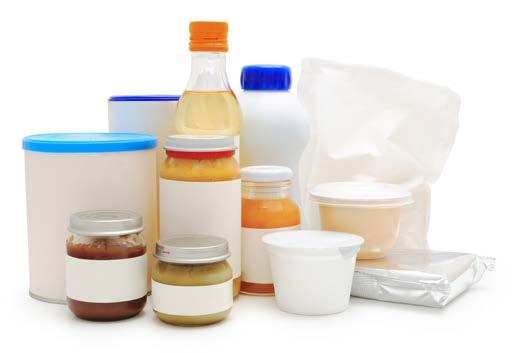
As sustainability becomes increasingly important, the food industry is rethinking packaging to reduce environmental impact while maintaining functionality.
Food companies are exploring emerging trends and incorporating best practices in a number of ways.
Sustainable materials: The shift toward recyclable, compostable, and biodegradable packaging is gaining momentum, with innovations in plant-based plastics and fiber-based alternatives.

“While we recognize there’s a lot of work to be done, ending plastic pollution remains a priority for our business,” says Pablo Costa, Vice President Packaging with Unilever. “That is why we are bringing more focus on key issues such as reducing our
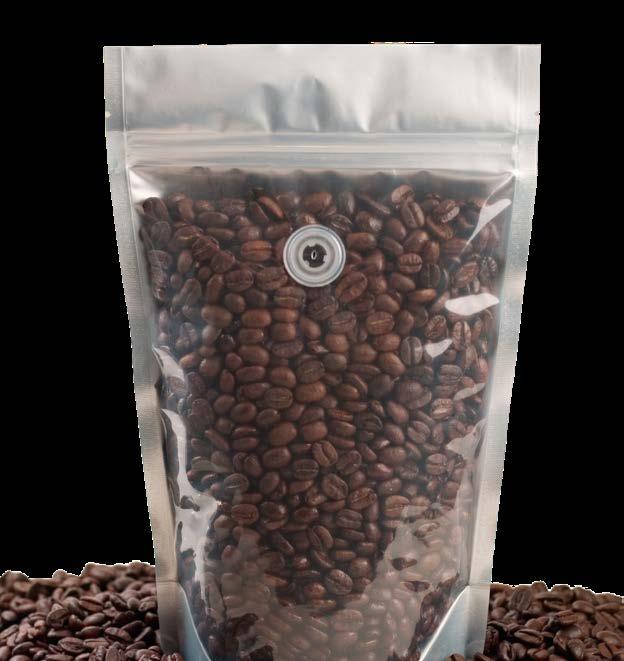
Food packaging comes in several main types, each chosen based on the product’s needs for protection, shelf life, convenience, and presentation. Key categories:
• Rigid Packaging (glass jars & bottles, metal cans, plastic containers)
• Semi-Rigid Packaging (paperboard or plastic-coated cartons, trays)
• Flexible Packaging (plastic films & pouches, foil wraps, paper wraps & bags)
• Composite/Multi-layer Packaging (paper, plastic, foil, other materials)
• Active & Smart Packaging (emerging as Active & Smart packaging).
use of virgin plastic and developing alternatives for hard-to-recycle flexible plastic packaging.”
Lightweighting: Reducing material use without compromising durability helps cut both costs and carbon emissions.

“Reducing materials not only improves our environmental footprint, it also creates efficiencies for our business,” says Jason Reiman, Senior Vice President and Chief Supply Chain Officer at The Hershey Company. “We continue to reduce packaging material, progressing to our 2030 goal to eliminate 25 million pounds of packaging materials. Our efforts extended beyond continuous improvement initiatives to identify broader reduction opportunities.”
Smart packaging: Technologies like freshness indicators, temperature sensors, and scannable codes provide real-time insights into product quality and supply chain visibility.
Circular economy practices: Businesses are investing in reusable packaging systems and encouraging consumers to recycle or return containers.

“Packaging can have a detrimental impact on the environment and we realize that it’s an industrywide challenge we all have to address,” says Linda Roman, Associate Director, R&D Packaging, The Kraft Heinz Co. “We look at ways to contribute to a more circular economy. How do we drive more sustainable solutions and keep packaging in play as long as possible. We focus on material reduction, recycled content, as well as recyclable, reusable, compostable packaging.”
Consumer-driven design: Easyto-open, resealable, and portioncontrolled packaging improves user experience while reducing food waste.
Ultimately, food packaging is inseparable from supply chain success. It safeguards food integrity, drives logistical efficiency, ensures regulatory compliance, and builds consumer trust. As global supply chains become more complex and sustainability expectations rise, innovative packaging will remain central to delivering safe, fresh, and responsibly sourced products to consumers worldwide.
This food manufacturer’s packaging strategy is science-based and benefits from the industry leading work of the Nestlé Institute of Packaging Science, which is the only research institute of its kind in the food industry. Set up in 2019, it has around 50 packaging experts dedicated to developing the next generation of sustainable packaging materials.
The Institute is helping to evolve the way packaging is designed. It is developing refillable or reusable packaging systems, designing simplified or recycled packaging materials and developing high-performance barrier papers and biobased, compostable and biodegradable materials.
Nestlé’s strategy is structured around five pillars:
1. Less Packaging – Reduce: Using less packaging material, including less virgin plastic, which it plans to reduce by a third by 2025 versus its 2018 baseline.
2. Less Packaging – Reuse and Refill: Working to eliminate non-recyclable plastics and investing in innovative, alternative delivery systems to eliminate the need for disposable packaging.
3. Better Packaging -Redesign: Collaborating with industrial partners to develop new packaging materials and solutions.
4. Better System – Recycle: Help stop plastic waste in the environment across global operations.
5. Better System – Rethinking Behaviors: Addressing the plastic waste challenge through fundamental behavioral change from the company, retail partners, suppliers and consumers.


KDP is a leading beverage company in North America, with a portfolio of 125-plus owned, licensed and partner brands and powerful distribution capabilities. KDP has been making progress toward its 2025 goals:
• Convert 100% of packaging to be recyclable or compostable
• Use 30% postconsumer recycled content across all packaging
• Use 25% postconsumer recycled content in plastic packaging
• Achieve 20% virgin plastic reduction across plastic packaging
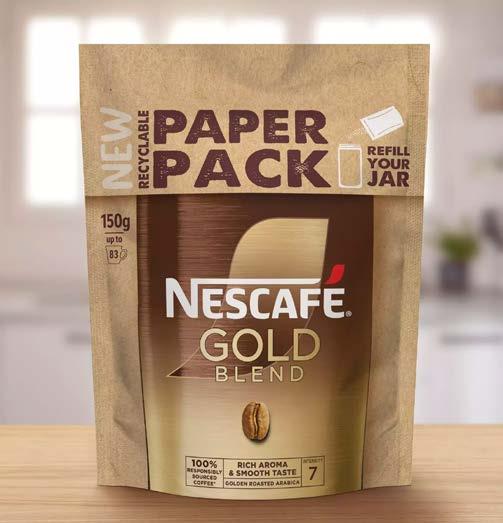
A recent example of the company’s packaging innovation: Launched in 2024, the Nescafé Gold refill paper pack is fully recyclable and uses 97% less packaging weight compared to our Nescafé Gold Blend 200g jars. Designed with consumer convenience in mind, the paper packs can be used to refill the glass jar, giving it a longer life, while maintaining the same taste and aroma.
In 2024, KDP announced it will be launching a next-generation innovation in K-Rounds plastic and aluminum-free pods as well as a new brewing system, the Keurig Alta brewer. K-Rounds pods are created from roasted coffee beans that are ground, pressed and wrapped in a proprietary, protective plant-based coating preserving the coffee’s flavor and aroma. KDP currently is in the beta testing phase, using a prototype brewer to gather insights from realworld homes and consumers that will help fine-tune the performance, quality and design of the system.


Conagra Brands is one of North America’s leading branded food companies, with Birds Eye®, Duncan Hines®, Healthy Choice®, Marie Callender’s®, Reddi-wip® and Slim Jim® among its portfolio. The company recently redesigned shipping pallets for Orville Redenbacher’s® kernels, fitting 30 more popcorn jugs per pallet. This creative, in-house solution had multiple co-benefits: it simplified the complexity and time needed to construct the pallet, reduced the need for manual labor, increased visibility of the product, and showed direct benefit to the retailer.


CONAGRA BRANDS’ CREATIVE IN-HOUSE SOLUTION SIMPLIFIED PALLET CONSTRUCTION, REDUCED MANUAL LABOR, INCREASED PRODUCT VISIBILITY, AND DEMONSTRATED DIRECT BENEFITS TO THE RETAILER.
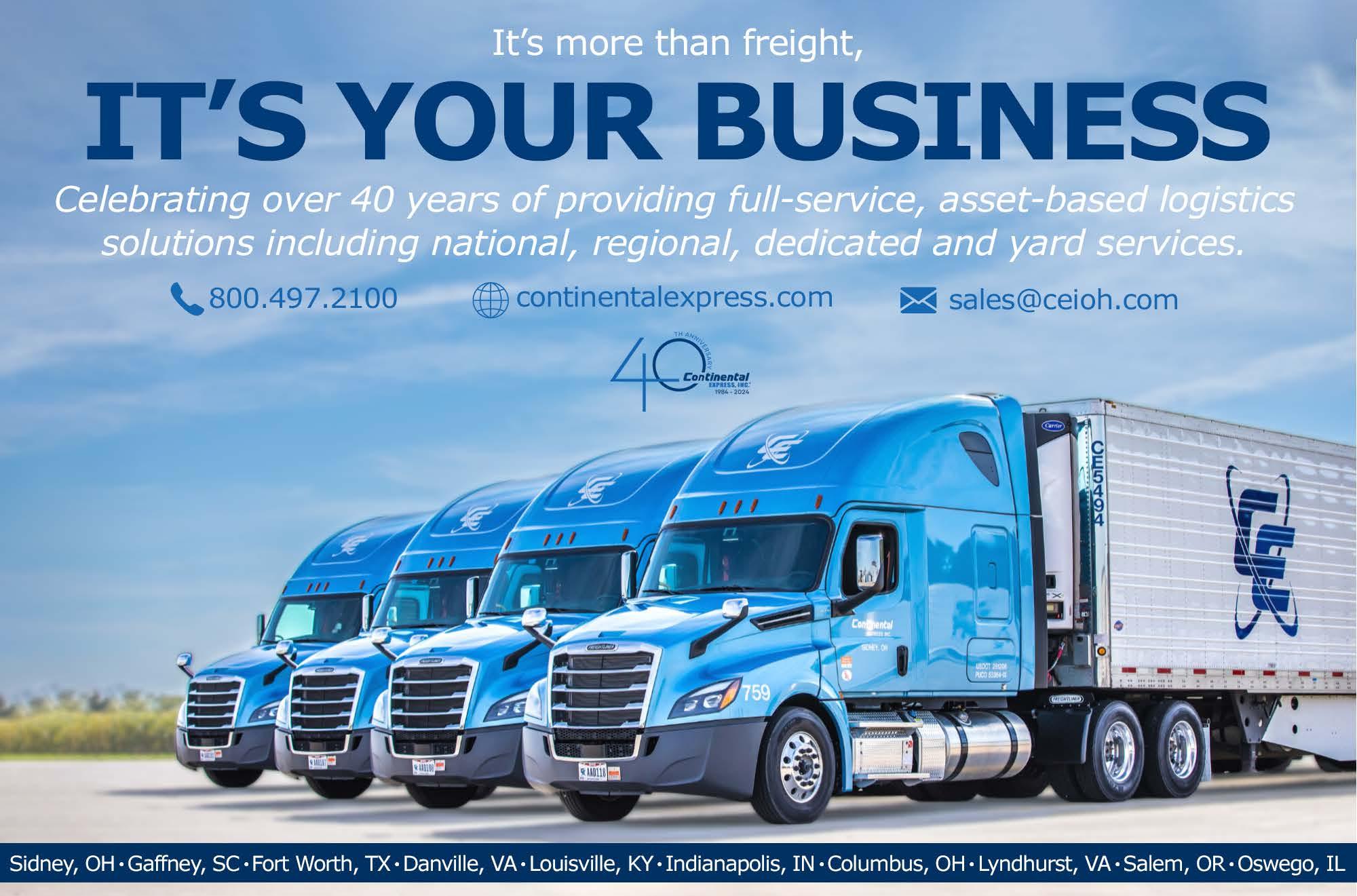
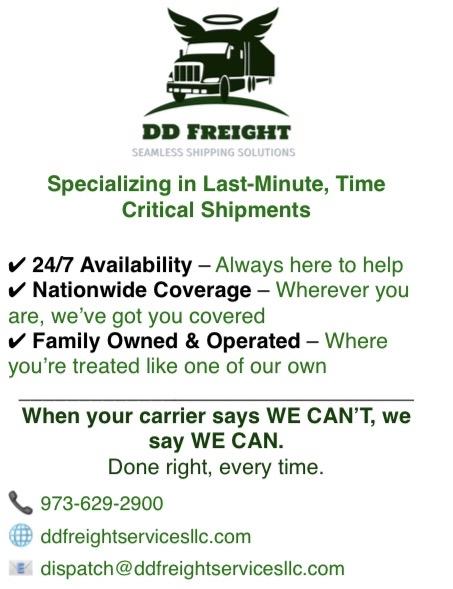

• Our locations: Chambersburg, PA





• Dry, Refrigerated, and Frozen Temperature Zones

• Asset based with refer and Dry vans

• Rail/Truck Cross Dock Services
• Rework and Packaging Services
• Import/Export containers from Eastern Ports

• Licensed for Alcohol Storage
• USDA Room

• Customs Bonded
412-441-9512





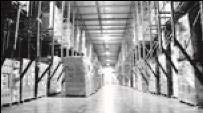



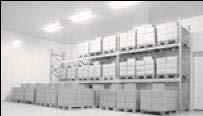



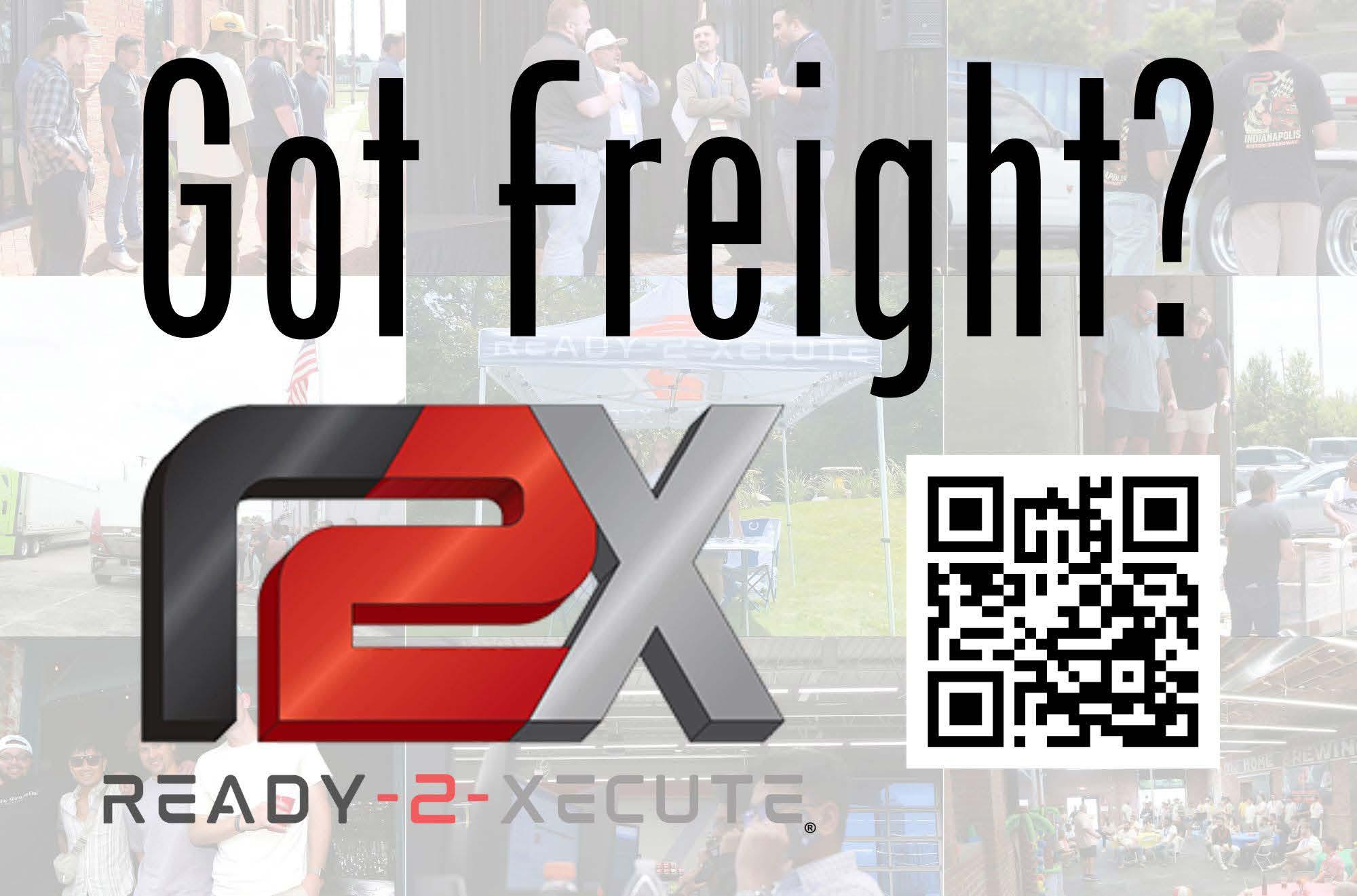

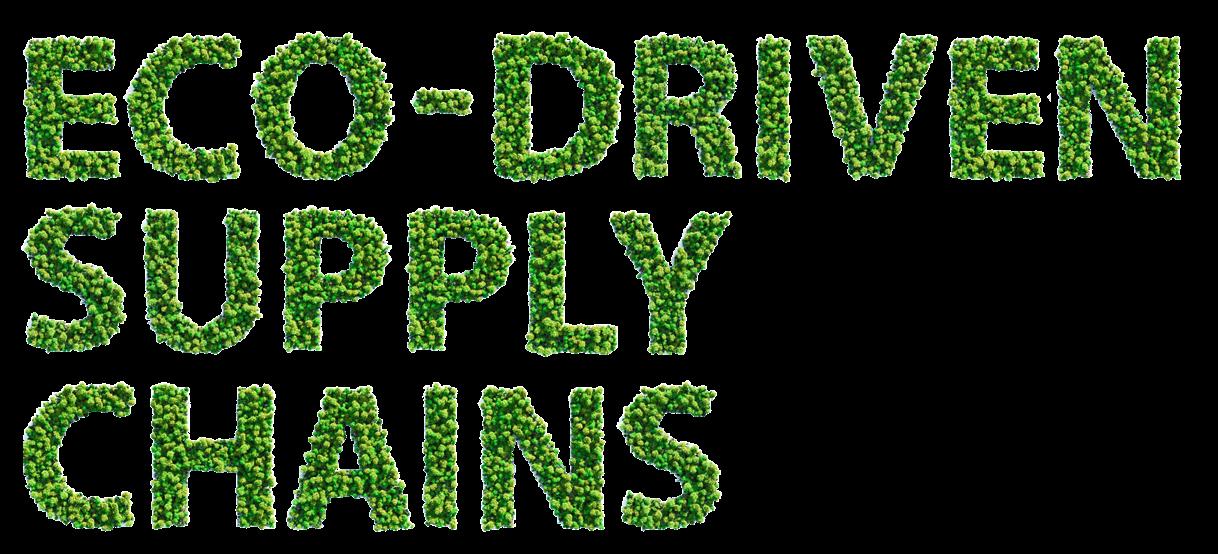

Sustainability is no longer a buzzword in the food industry— it’s a critical business imperative. Food companies increasingly are prioritizing eco-friendly practices across their supply chains, aiming to reduce environmental impact while promoting long-term resource efficiency.
In fact, industry observers estimate approximately 45% of food manufacturers have implemented sustainability initiatives in their supply chains ranging from facility upgrades that incorporate cleaner energy sources to circular strategies like recycling, upcycling, and waste minimization to reduce environmental impact.
One key strategy by leading brands such as Nestlé, PepsiCo, General Mills and Cambell’s is sourcing ingredients from local or regenerative farms. By supporting agricultural practices that replenish soil health and reduce reliance on synthetic inputs, companies are fostering more resilient food systems while cutting transportation-related emissions.
Packaging is another area seeing significant innovation (see cover story on page 6). Food companies are investing in eco-friendly materials, from compostable containers to recyclable films, to minimize waste and lessen their carbon footprint. These efforts oftentimes are paired with optimized logistics, including smarter routing and load planning, to reduce fuel consumption and overall greenhouse gas emissions.
Leading companies such as Walmart, Kellanova, Tyson Foods and McDonald’s are leveraging technology to build greener supply chains. Advanced tracking and analytics platforms, AI-powered platforms, and blockchain allow companies to monitor environmental and social standards at every step—from farm to fork. Increased transparency not only helps businesses meet sustainability goals but also empowers consumers to make informed choices about the products they buy.
Collaboration is essential to success. Food shippers, distributors, and
FOOD SHIPPERS, DISTRIBUTORS, AND LOGISTICS PARTNERS ARE WORKING TOGETHER TO IMPLEMENT BEST PRACTICES, SHARE INNOVATIONS, AND SCALE SUSTAINABILITY INITIATIVES ACROSS THE INDUSTRY.
logistics partners are working together to implement best practices, share innovations, and scale sustainability initiatives across the industry. By integrating ecoconscious strategies into sourcing, packaging, transportation, and technology, food companies are transforming their supply chains into drivers of both environmental stewardship and operational efficiency.
As consumers demand more sustainable products, the companies that embrace green supply chain practices today are positioning themselves for longterm success tomorrow.

Many food manufacturers, retailers, and distributors are setting ambitious sustainability goals that not only reshape their supply chains with greener practices but also drive long-term business value and resilience. Here are some examples.
Sustainability goals focus on climate, land, and water, aiming to achieve deforestation-free supply chains by 2030, reduce operational greenhouse gas (GHG) emissions by 10% by 2025, reduce global supply chain GHG emissions by 30% by 2030, and ensure positive water impact by 2030, including enabling the restoration of 600 billion liters of water by 2030. Cargill also aims to support 10 million farmers by 2030 with training
To move to a carbon-neutral economy, Hormel Foods has joined thousands of other businesses and financial institutions working with the Science Based Targets initiative (SBTi) to reduce emissions in line with climate science. As part of the company’s “20 By 30 Challenge,” it has established a goal that demonstrates climate leadership through a science-based target for the reduction of GHG emissions by 2023.
“Science-based targets are an aggressive set of goals to achieve worldwide climate targets to offset what we believe to be the worst elements of climate change,”
Committed to model and promote sustainable practices, in FY2023 Sysco introduced its “One Planet One Table” sustainability platform to amplify and unite efforts across three pillars: products, people and planet. Under the ‘products pillar’ within Sysco’s supply chain infrastructure, it promotes responsible sourcing to enhance animal welfare, biodiversity and ecosystem health. Under the ‘people pillar,’ Sysco engages and invests with local, small and diverse suppliers. Under the ‘planet pillar,’ the company is developing and promoting industry-leading sustainability standards and best practices, such as regenerative agriculture. Sysco also is
on sustainable agricultural practices and improve access to markets, while also promoting regenerative agriculture.
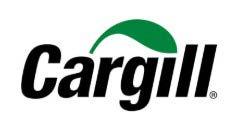
“Cargill depends on both nature and people to do our business,” says Pilar Cruz, Chief Sustainability Officer at Cargill. “Protecting the earth’s resources — and those who rely on them — is embedded into our company’s purpose.”
says Tom Raymond, Director of Environmental Sustainability at Hormel Foods. “We’ll do this by reducing our energy use, making our energy cleaner and working with our partners to reduce emissions throughout our supply chain. Our greenhouse gas emission reduction targets are extremely aggressive and our timeframe is short. We’re looking at 2030 to meet all targets, but have interim goals as early as 2025. This effort will require us to review our systems and processes and think differently about how we’re going to tackle the challenges before us.”
encouraging suppliers to reduce their climate impacts by setting SBTi’s.

“We are progressing our fleet electrification program, but now also using new levers to deepen reductions, including sourcing renewable diesel and commitment to long-term, scaled renewable energy agreements,” says Henry Fovargue, Vice President of Sustainability at Sysco Corp. “One initiative I am excited about is the PPA we signed to bring more renewable electricity to our sites. Within the next three years, the solar field we are building should be able to power the equivalent of more than 26,000 homes, equivalent to 40% of our electricity at that time.”
“We have defined the following three principles that we feel make sustainability at Post specific to our business and culture and will drive further integration of sustainability factors into daily processes, actions and decisions across all business functions: maintain foundation, seek optimization, and work together,” according to Nick Martin, Vice President, Corporate Sustainability at Post Holdings.

Post maintains foundation by consistently delivering on the essentials and making sure its sustainability efforts complement, but do not distract from, the foundational actions that define a responsible company. The company seeks optimization to eliminate waste in all forms and actions through continuous improvement, including wasted materials, time, capital, natural resources and any other inefficiencies. By optimizing, the company’s business becomes more sustainable. Lastly, Post is working toward sustainability goals by working together with its constituents, internally and externally.

Effective yard operations offer supply chain leaders one of the most direct ways to cut fuel use, lower emissions, and improve working conditions. But real results come only when practices are integrated into a broader yard operating system rather than applied as one-off fixes.
At the facility level, initiatives such as right-sizing fleets, replacing outdated tractors with high-efficiency or electric units, and practicing preventive maintenance can immediately reduce diesel consumption. Electric terminal tractors, in particular, are a practical first step for fleet electrification thanks to predictable duty cycles, depot charging, and lower maintenance needs.
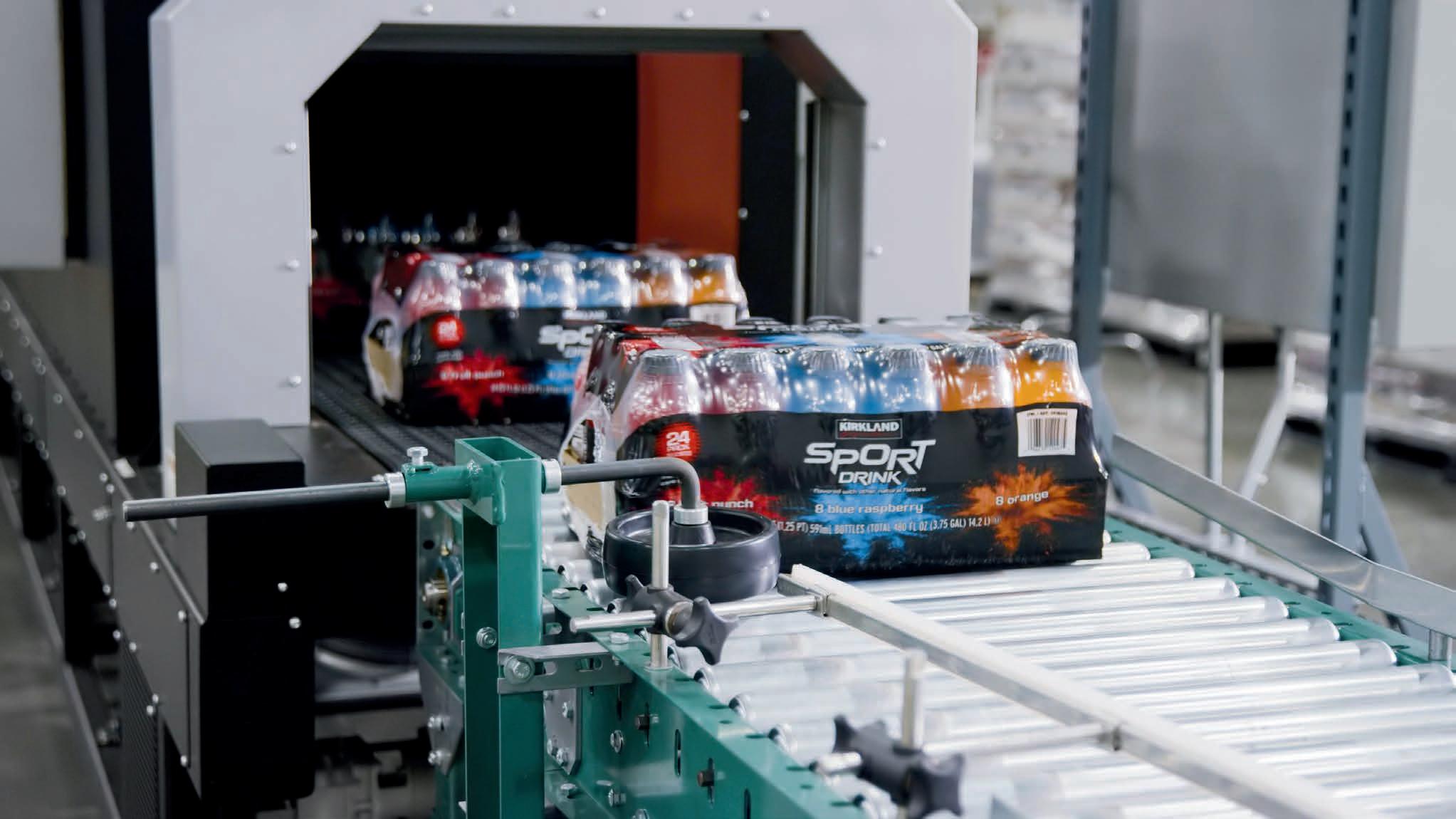
Process improvements amplify these gains. Gate appointment systems, better scheduling, and realtime visibility reduce idling—burning about one gallon of diesel per hour. Data-driven planning minimizes redundant moves, while digital yard checks ensure trailers are shifted only when needed. Training drivers on efficient practices helps reinforce both operational and environmental benefits.
When scaled across networks, savings multiply. What begins as tens of thousands of gallons saved at one site can translate into millions across an enterprise, eliminating tens of thousands of metric tons of CO₂. Each gallon of diesel avoided prevents about 22 pounds of emissions—every 450 gallons roughly equals taking one passenger car off the road for a year.
YMX Logistics has applied this approach with a topfive U.S. grocery retailer, cutting its active fleet from 22 to 14 yard trucks, upgrading equipment, and digitizing operations. The result: over $450K in annual savings plus measurable sustainability gains.

Erin Mitchell
“For food shippers, yard operations have traditionally been treated as a cost center rather than an opportunity to unlock,” says Erin Mitchell, COO for YMX Logistics. “But from my own experience, when properly managed, they become a direct lever for performance. However, you can only achieve that by uniting people, assets, safety, sustainability, technology, and data within a yard operating system that transforms operations from reactive and disconnected to resilient and highly optimized.”
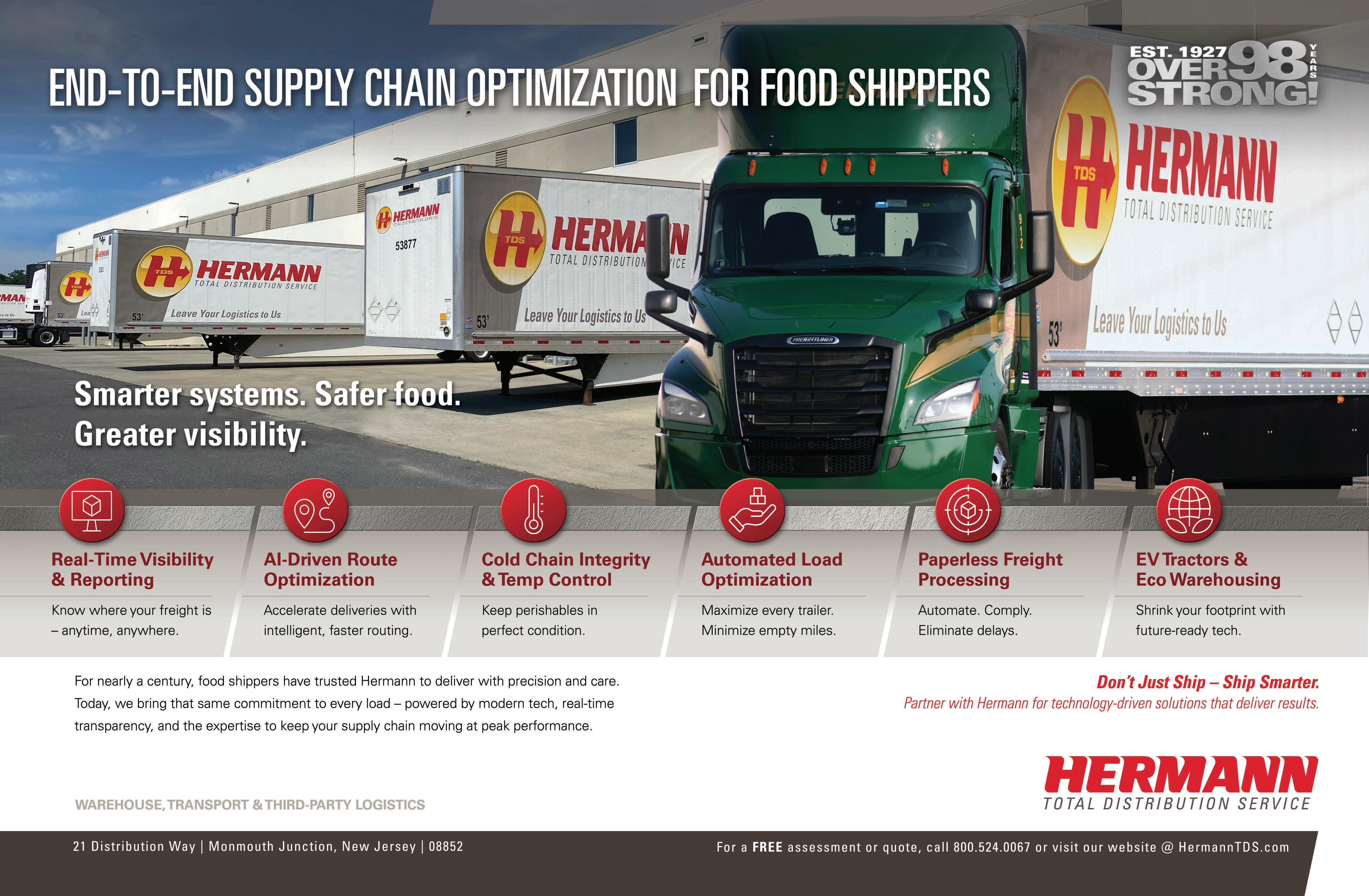

Food companies know their greatest asset isn’t just technology, trucks, or facilities—it’s their people.
From plant floors to boardrooms, food manufacturers, retailers, and distributors are strategically rethinking how they attract, develop, and retain the workforce that keeps supply chains moving. This is particularly critical given in 2025, 62% of industry leaders identified labor shortages as a major short-term challenge for their operations, highlighting persistent talent constraints that could disrupt supply chain efficiency and growth initiatives.
Talent management and human resources executives, along with supply chain executives who have responsibilities in this area, may not think of recruiting as a supply chain, but Blair Bennett, Senior Vice President, Global Talent Acquisition with PepsiCo, says that’s how her team sees it.

“We are supply chain for talent,” according to Bennett, who recently spoke at HCI’s Spark Talent Conference. “It’s how to think about the massive strategic, operational, logistical puzzle that we have to put together. We could be thinking about one niche skillset role in China, or we could be thinking about how we hire hundreds of people as we open a new facility or manufacturing plant in Poland.”
Identify high-potential employees early and create tailored leadership tracks. Use mentorship programs to pass institutional knowledge to emerging leaders. Implement job rotations and stretch assignments to prepare employees for broader responsibilities. Conduct succession readiness assessments for key roles, updating regularly.
One solid example of a food company incorporating this?
Nestlé’s 2025 people strategy explicitly links acquisition, retention, leadership development and preparing a “future-ready” workforce — a concise corporate statement you can cite for strategy + skills development. The company’s approach is based upon six key pillars: Talent Management; Employee Relations and Engagement; Organizational Design and Change Management; Diversity, Equity and Inclusion; Employee Health, Well-Being and Safety; and Compensation and Benefits.
Cargill’s Next Generation Graduate Program provides structured development through training and mentorship, aiming to develop strong internal talent for future leadership roles.
Implement personalized training programs that address both technical skills (e.g., supply chain, automation, food safety) and soft skills (communication, problemsolving). Offer microlearning and digital courses accessible anytime, anywhere. Establish apprenticeships, rotational programs, and cross-training to broaden experience. Partner with universities, technical schools, and industry associations to offer certifications or upskilling programs.
Nestlé’s Learning & Development Programs are built partially on
a global “Nestlé Academy” that provides training on everything from technical skills (supply chain, production, digital tools) to leadership and soft skills.
Competition for skilled workers is tough, especially in logistics, operations, and technical roles. To stand out, companies are offering more than just pay—they’re focusing on flexible work where possible, health and wellness programs, and a culture that ties employees to a bigger mission, like feeding communities or driving sustainability.
Bennett at PepsiCo advises recruiters they should never underestimate the power of their position, because their job is at the center of business strategy, “bringing that strategy to life with the talent that we bring into the organization.”
“Being a leader, if you think about how to recruit new capabilities … to identify things that are much more horizon two, horizon three, and where the business is going,
we get to influence that through our conversations, through our recruiting efforts, through our own talent strategies … and help to build the DNA of the organization through talent,” she says.
Talent acquisition leaders also need to think about the strategic and operational aspects of how talent and behaviors are changing, and to create processes within that context of change, adds Bennett.
“We are constantly thinking about the evolution of our talent, of our prospective talent, and how we bring that through into the supply chain of talent into the company,” she says.
Use HR analytics to identify skill gaps, predict workforce needs, and improve retention. Implement AI-driven recruitment tools to match candidates to roles efficiently. Deploy digital learning platforms with adaptive learning paths. Track performance metrics, training completion, and engagement to continuously optimize talent strategies.
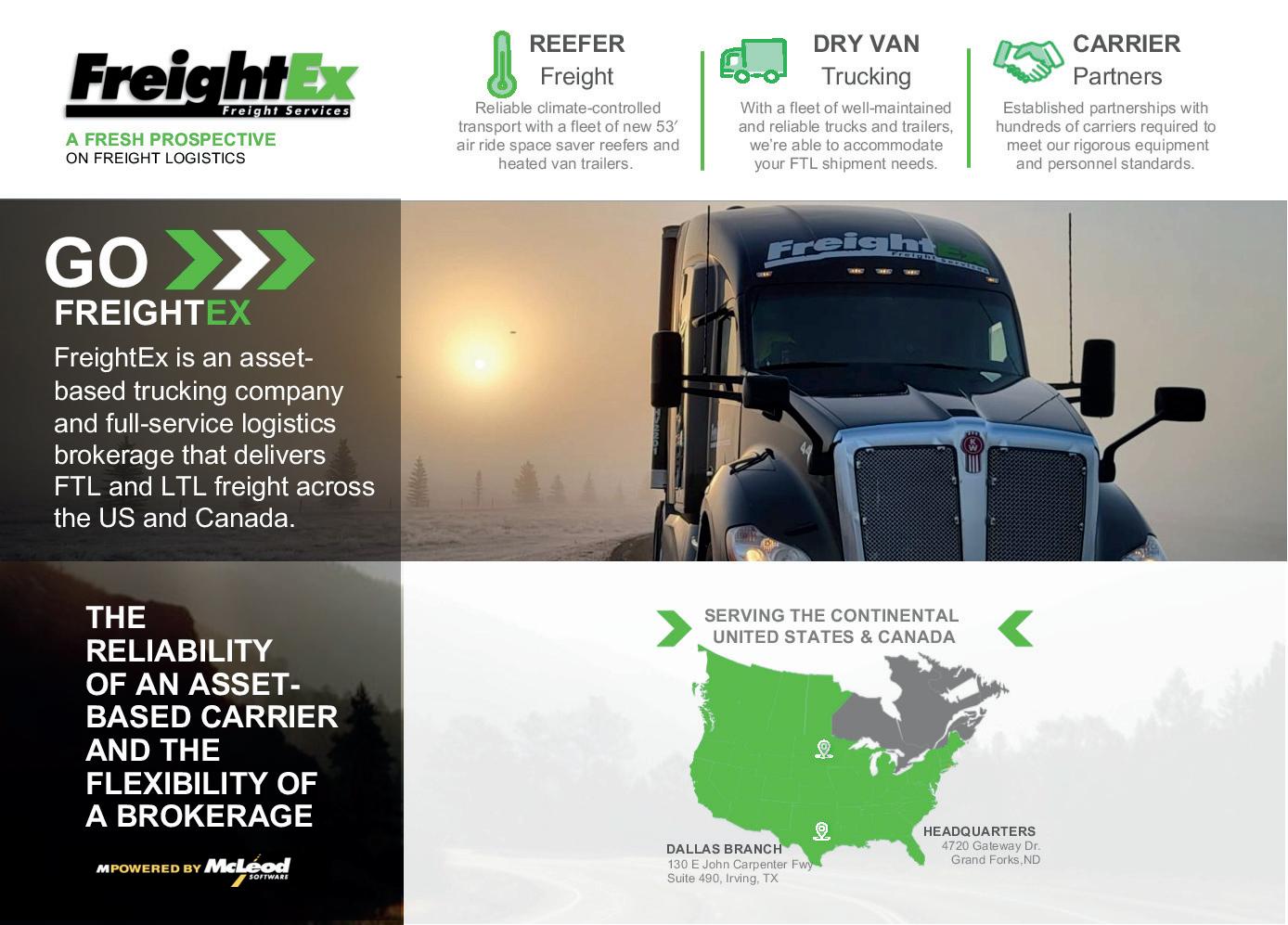
Nestlé is leveraging artificial intelligence to assess workforce readiness and connect professionals with roles that let them grow alongside new technology. The company partners with hightech companies to ensure that employees are equipped with the necessary skills to thrive in an AI-enhanced environment. This approach supports both the company's transformation and the professional growth of its workforce.
General Mills has implemented AI-driven coaching to scale leadership development across the enterprise. The food manufacturer’s approach includes personalized, realtime guidance to leaders, enhancing decision-making and leadership capabilities
“People strategies” can’t be left to chance. Labor shortages, rising expectations from employees, and rapid technology adoption mean companies need a structured approach to developing and retaining supply chain talent. Consider all these components to your supply chain talent strategy:
Skills Development, Continuous Learning
Succession Planning, Leadership Development
Attraction & Retention
Cross-Functional Collaboration
Leveraging Technology and Data
Diversity, Equity & Inclusion
Workforce Planning & Flexibility
Feedback, Engagement
Corporate Culture
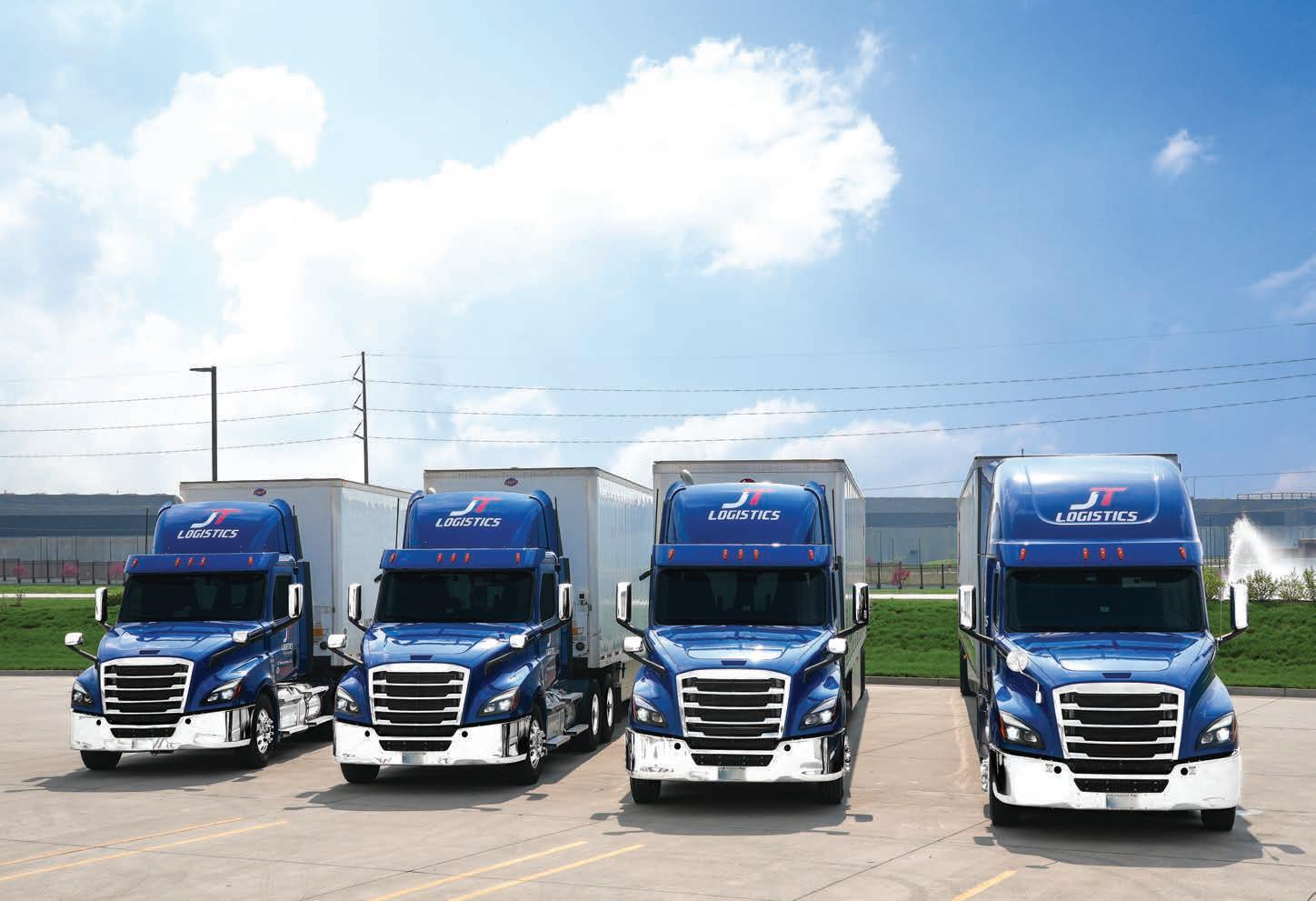

Strong community relations are more than a goodwill gesture to many companies in the food and logistics industries— they are a business imperative.
Such community relations initiatives operate at the heart of local economies, sourcing ingredients, employing community members, and serving as vital links in the food supply chain. By investing in meaningful community partnerships, companies not only strengthen their reputations but also foster loyalty among consumers who want to support brands that share their values.
Community relations efforts take many forms, from hunger relief donations and food bank partnerships to educational programs, local farm support, and sustainability initiatives. These efforts help address critical social issues, such as food insecurity
and nutrition awareness, while demonstrating that food companies and their partners are committed to more than profits. In turn, such actions build trust, strengthen brand identity, and deepen connections with customers, employees and partners.
Ultimately, community relations give companies an opportunity to create positive impact beyond their products. By engaging with local needs and contributing to broader societal goals, they help ensure long-term success for their businesses and the communities they serve. Here are a few examples of the good work companies in the food industry are doing.
In 2024, 5.8 million dogs and cats entered shelters and rescues in the U.S. alone, which marks the fifth consecutive year shelters are experiencing more intakes than outcomes, according
to Shelter Animals Count. Hill’s Pet Nutrition, a global pet food company focused on producing science-based, premium nutrition for cats and dogs, has been on a quest in collaboration with shelters and veterinarians nationwide to end pet homelessness.

“At Hill’s, we are building on our support to fill the gap of consumer data available to animal welfare professionals across North America,” says Chelsie Estey, U.S. Chief Veterinary Officer of Hill’s Pet Nutrition. The company publishes its annual “State of Shelter Pet Adoption Report,” a vital resource for animal care professionals to understand consumer barriers, perceptions and opportunities to help our nations’ most vulnerable pets.
In addition, since 2002 the Hill’s Food, Shelter & Love Program (HFSL) has partnered with animal shelters across the country, focusing on the three pillars through actions like: feeding shelter pets, increasing adoptions, improving outcomes, and keeping people and pets together. Since its inception in North America, the program has
provided more than $300 million science-led nutrition to more than 1,000 animal shelters. HFSL also has supported more than 15 million shelter pet adoptions.
In addition, the Hill’s Disaster Relief Network provides critical nutritional support to pets, their families and the organizations on the front lines. This commitment was exemplified as Hill’s responded to all of the major U.S. natural disasters over the past 15 months, including Hurricane Helene, Hurricane Milton, and the Los Angeles Wildfires—ensuring support when and where it was needed most. Over the past 12 years, this network has donated more than 4.4 million pounds of food to help care for the pets impacted in disasters and supported 1,100-plus shelters, veterinary clinics and non-profit organizations.
Publix works with nonprofit organizations to help neighbors in need by providing resources, hope, and positive experiences.
Each year, Publix invites customers and associates to donate to March of Dimes to protect moms and babies, and help them get the support and care they need. In 2025, Publix raised nearly $5.4 million, earning the company the prestigious honor of being the non-profit’s number one corporate partner for the tenth year in a row. Since 1995, Publix raised more than $100 million at the point of sale for March of Dimes.
In 2025, customers and associates helped raise more than $5.2 million to benefit Children’s Miracle Network Hospitals. Over a 30-year

“H
— MIKE C., ASSISTANT TRANSPORTATION DIRECTOR OF WHOLESOME FOODS INC.
We’re with you through every freight journey, solving food logistics challenges with real-world trucking expertise, a track record of success and relationships built on trust. Ship with Schulz Logistics.
SchulzLogistics.com/Food rnickeson@schulzlogistics.com 531-289-1951

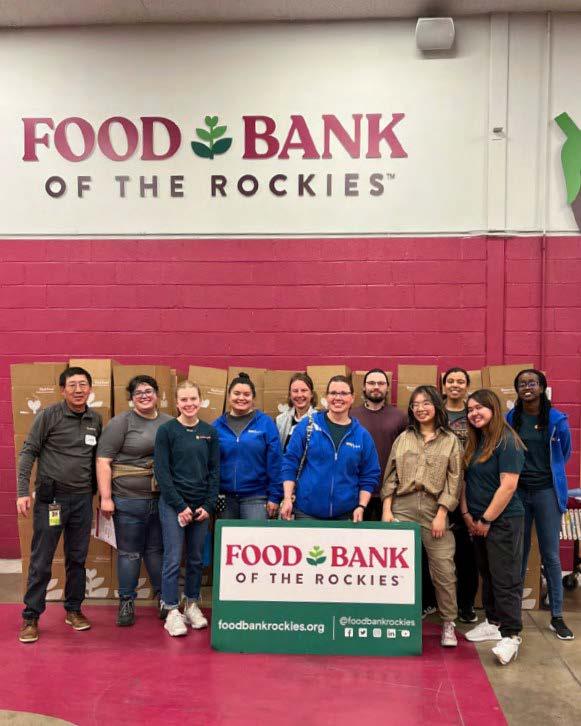
Ardent Mills has a long-standing partnership with the Food Bank of the Rockies. To date, the flour-milling and ingredient company has donated 4.2 million meals and its Colorado team members have volunteered hundreds of hours to help provide thousands of meals to those in need across Colorado and Wyoming.

McDonald’s commitment to serving communities has helped Ronald McDonald House Charities (RMHC) positively impact millions of families and expand core programs and services through direct donations, in-kind services, and volunteering. RMHC operates 380-plus Ronald McDonald House programs in 62 countries and regions worldwide.

Whole Foods Market Foundation has awarded over $3.4 million since 2016 to nonprofits focused on fresh food access and nutrition education –including a transformational program to these kids in Jasper Elementary School in Indiana. In 2024, the program supported 477 grants in 161 cities, with 300 team members participating in community projects.

Butterball team members partner with local organizations to meet critical needs of their communities, from disaster relief and holiday donations to youth programs. Team members in Huntsville, AR, sponsor high school athletics, support 4H programs, and participate in Kiwanis charity drives.
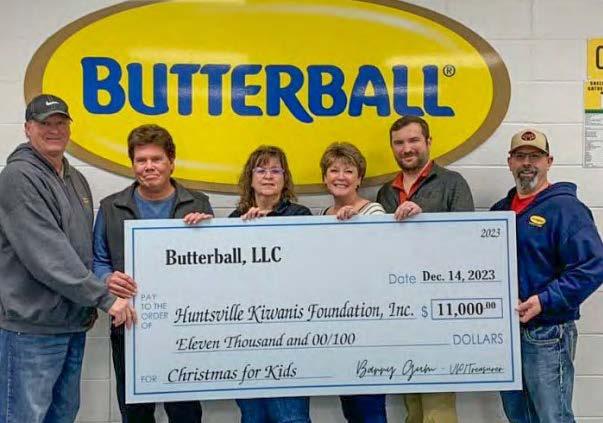
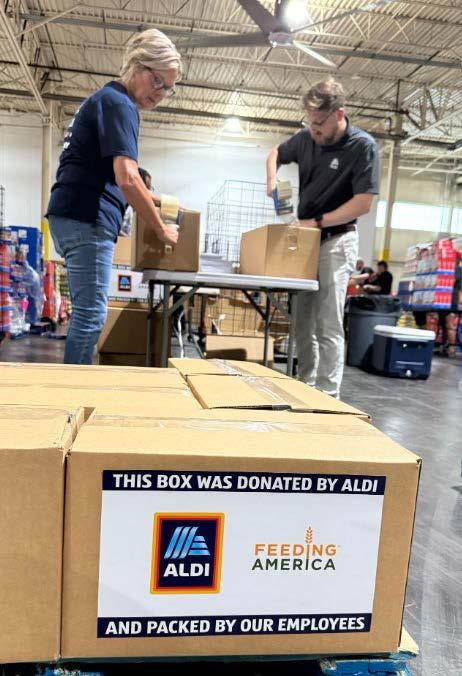
Aldi works with its network of 25 warehouses and suppliers to provide Feeding America with everything from baby food, diapers, ready-to-eat items and water bottles to bleach and cleaning supplies. This past year, employees and customers donated more than $400,000 to Feeding America and donated an additional $250,000.

Simplot Company supports causes in the communities and industries it operates. From donating products to helping feed people in need, Simplot and its employees support ongoing efforts that make their communities better places to live, including the recent Meat & Tater Idaho BBQ Fest in Meridian, ID.
partnership with Children’s Miracle Network Hospitals, Publix customers and associates have donated over $73 million to member hospitals throughout the Southeast. Whenever a donation is given, it goes to the nearest designated facility, ensuring that local dollars help local kids.
Every January, Publix raises awareness and funds for Special Olympics, the world’s largest sports organization for children and adults with intellectual disabilities. Associates and customers can choose to donate by purchasing a paper torch at the register. All campaign funds raised will directly support local and statewide athletic programs. In January 2025, Publix raised nearly $5.3 million to Special Olympics—bringing total donations since 1993 to more than $81 million.
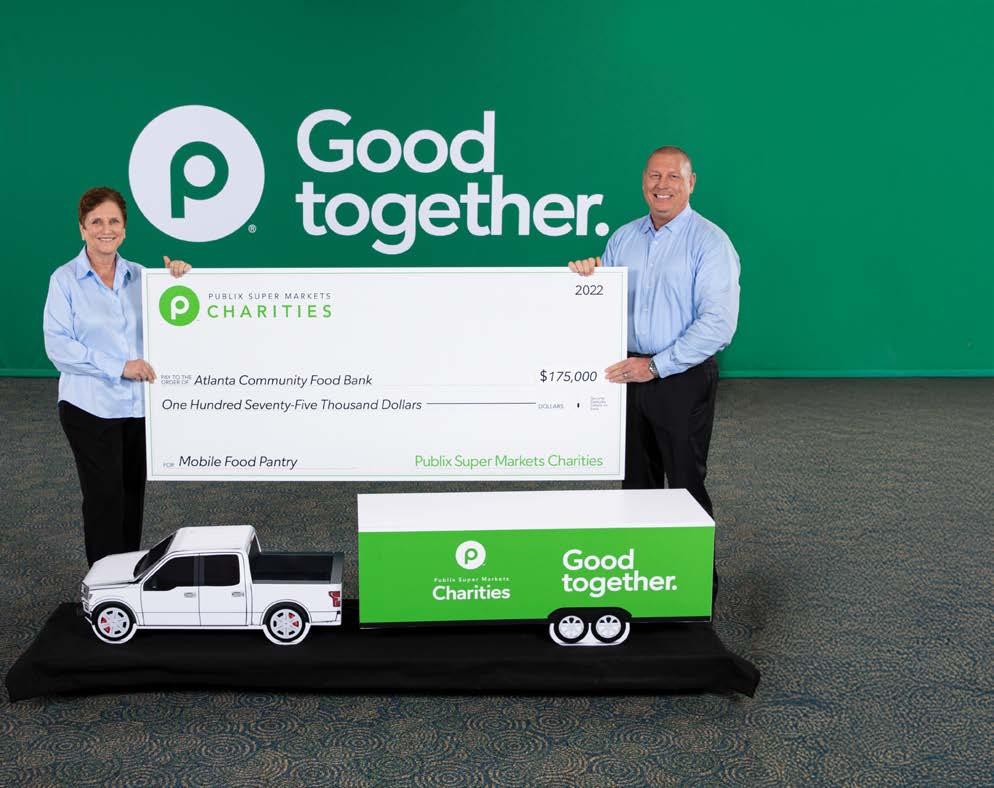
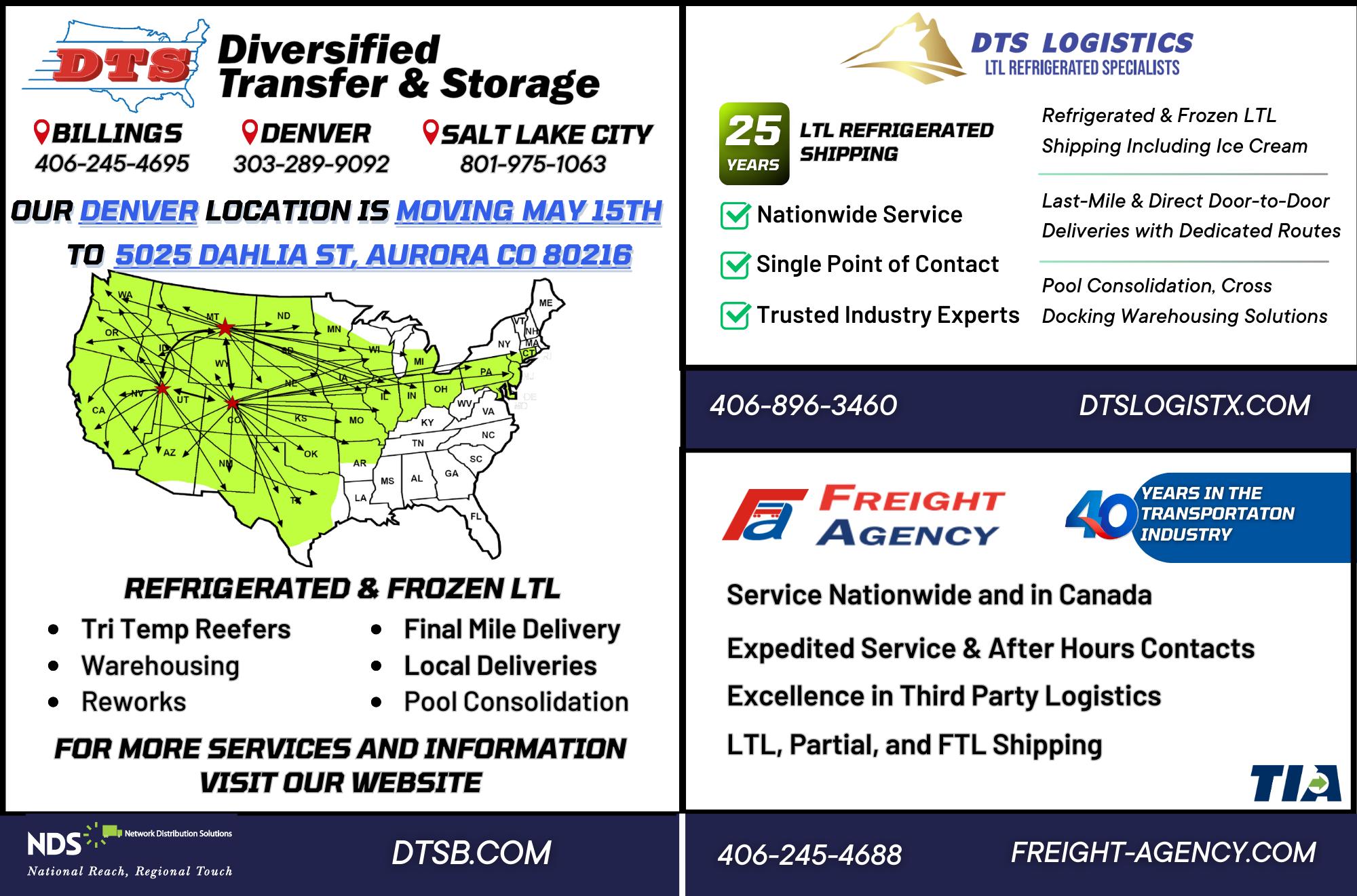

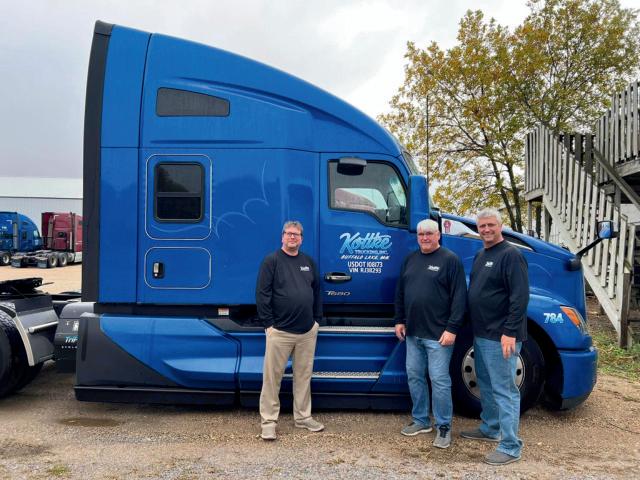
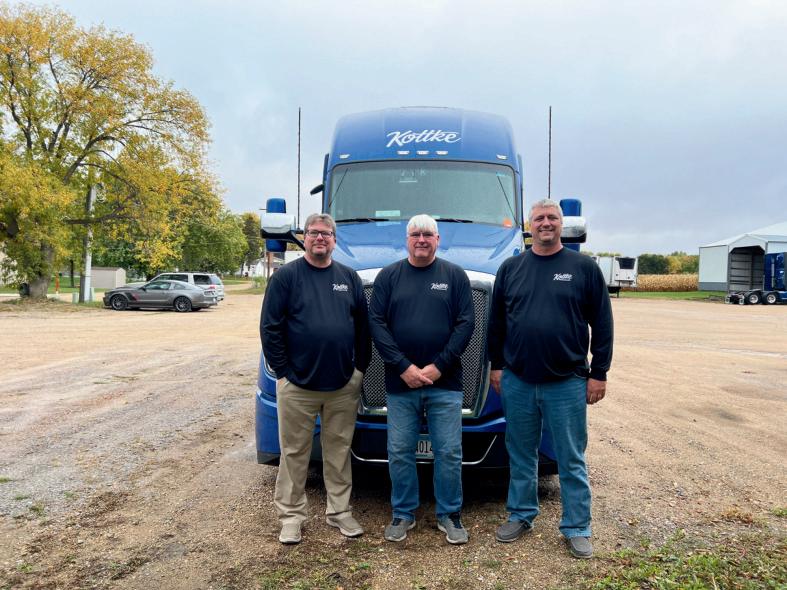
And front to back.
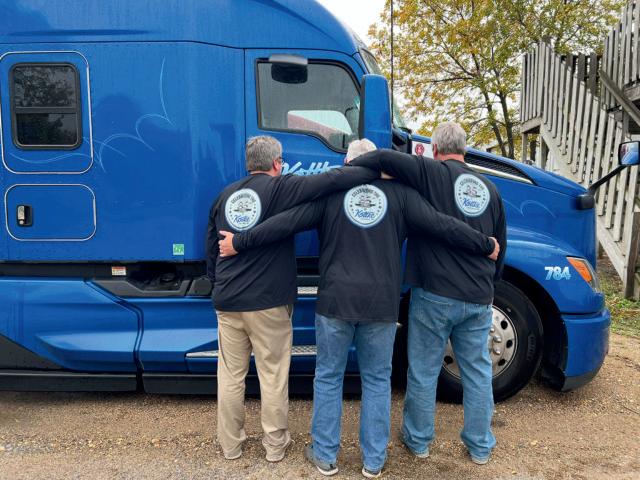
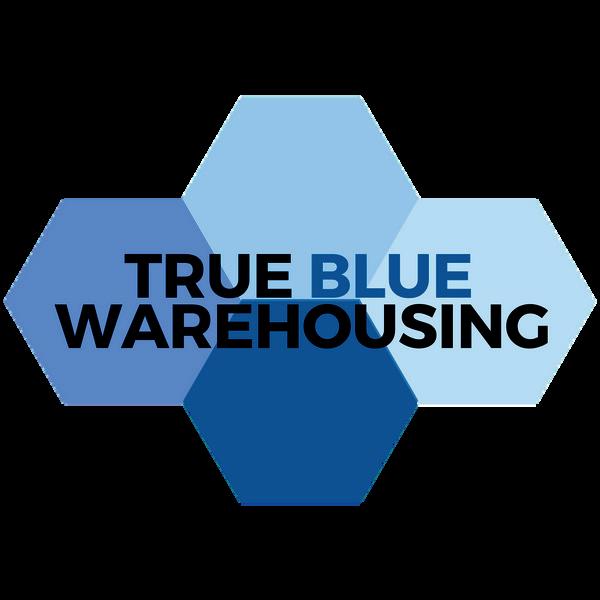
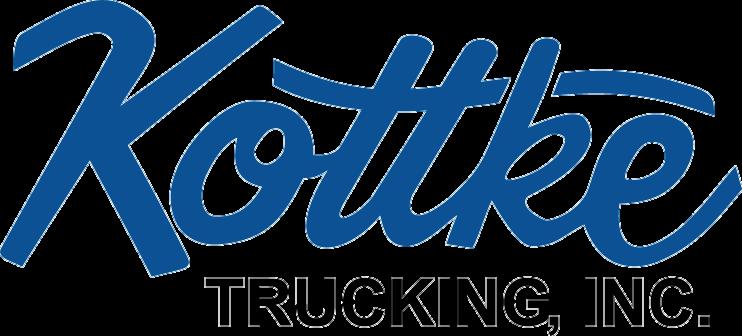
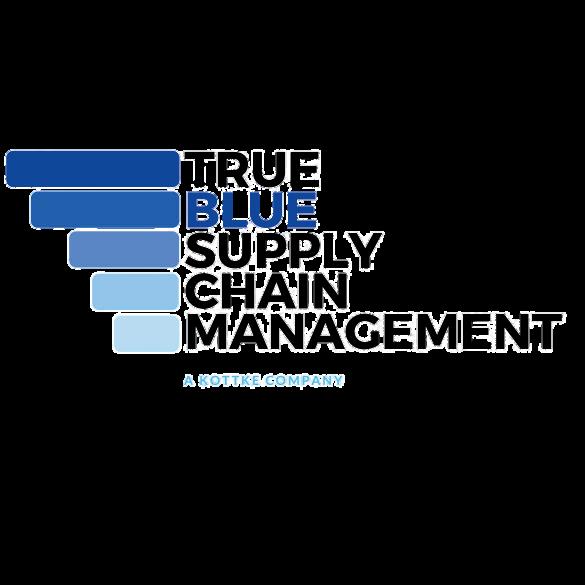
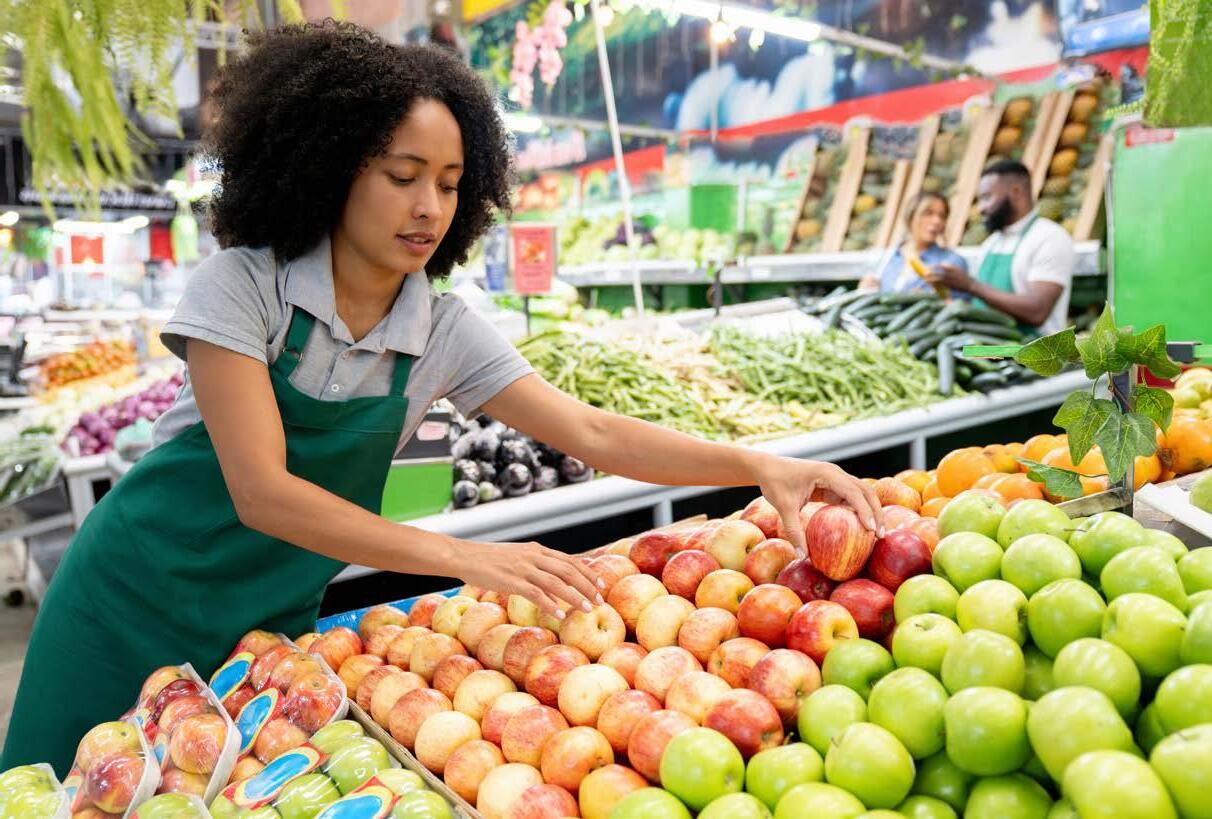

Food supply chains historically were primarily defined by physical assets—trucks, warehouses, cold storage facilities, and production lines. Today, they are just as reliant on digital networks and data systems as they are on forklifts and pallets. This increasing reliance on technology—from connected IoT sensors in warehouses to AI-powered demand forecasting—makes food companies more vulnerable to cyber threats than ever before.
Food supply chains are vast, interconnected, and essential. A single disruption can ripple across retailers, restaurants, and households in a matter of days. Cybercriminals know this. According to recent reports, ransomware attacks on food and agriculture companies have surged, with threat actors seeing these businesses as “critical infrastructure” that are likely to pay quickly to minimize disruptions. In fact, there was a 27% uptick in ransomware attacks on the U.S. food and agri sector in 2024, with 212 attacks recorded compared to 167 in
2023, according to the Food and Agriculture-Information Sharing and Analysis Center.
In June 2025, United Natural Foods, Inc., a major food distributor, identified unauthorized activity on internal networks and proactively took certain systems offline to investigate and resolve the issue. While the incident was quickly contained, the disruptions affected its ability to fulfill and distribute orders, which led to downstream effects, such as delays or empty shelves in certain stores.
In November 2024, Ahold Delhaize USA disclosed a ransomware/data-breach
ACCORDING TO RECENT REPORTS, RANSOMWARE ATTACKS ON FOOD AND AGRICULTURE COMPANIES HAVE SURGED, WITH THREAT ACTORS SEEING THESE BUSINESSES AS “CRITICAL INFRASTRUCTURE” THAT ARE LIKELY TO PAY QUICKLY TO MINIMIZE DISRUPTIONS.
potentially affecting a significant number of individuals in its operations. According to the company, affected individuals include certain current and former employees, their dependents and beneficiaries and others whose personal information was identified in the relevant internal business files. While the company quickly took steps to assess and mitigate the issue, the breach ultimately involved personal data across its U.S. business (e-commerce, pharmacies), prompting notifications, potential
costs for remediation, regulatory risk, and reputational damage.
Upon detection last November, the company says it began taking steps to assess and contain the issue, including working with external cybersecurity experts to investigate and secure the affected systems, and has taken steps to further protect its systems in the aftermath of the issue.
Even as leading food companies have managed to successfully overcome such major cyberattacks,
the growing threat underscores the urgent need to understand vulnerabilities and put strong defense strategies in place to protect the supply chain.
A successful cyberattack on a supply chain can lead to spoiled inventory, delayed deliveries, lost sales, and damaged trust with consumers and business partners. In some cases, compromised data
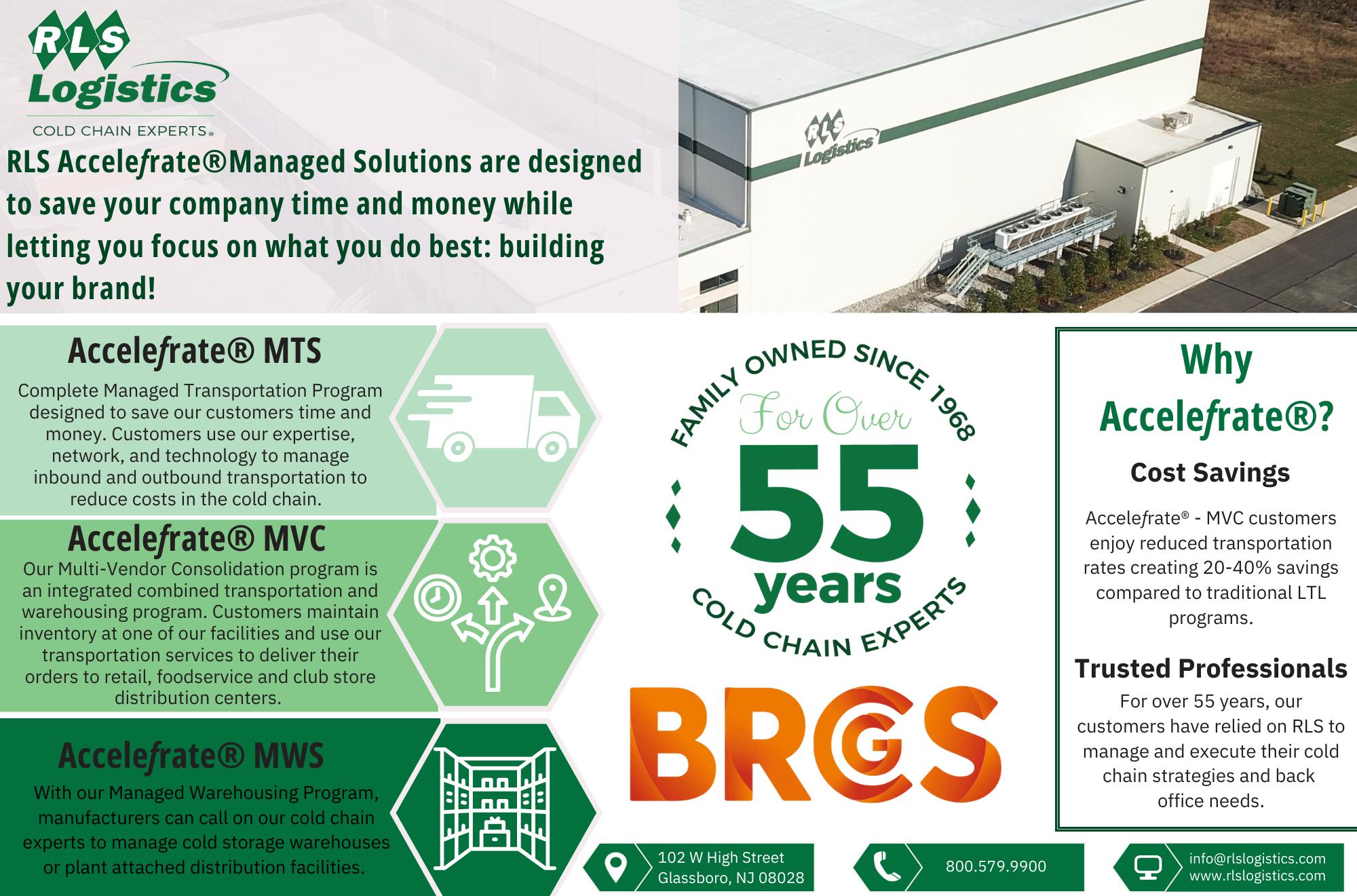
can include sensitive formulas, pricing contracts, or even customer payment details.
Cybersecurity specialists in the food chain suggest some strategies to strengthen security in your supply chain:
• Regular risk assessments to identify system gaps and vulnerable access points.
• Stronger vendor management, requiring third parties to comply with rigorous security standards.
• Multi-factor authentication and network segmentation to reduce the risk of unauthorized access.
• Ongoing employee training so workers at every level recognize phishing attempts and cyber risks.
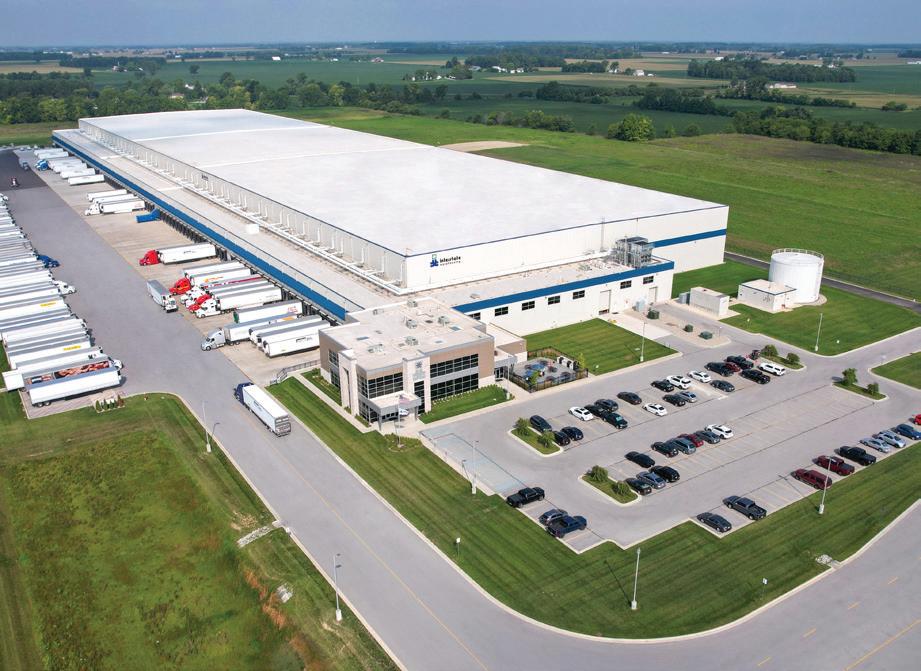

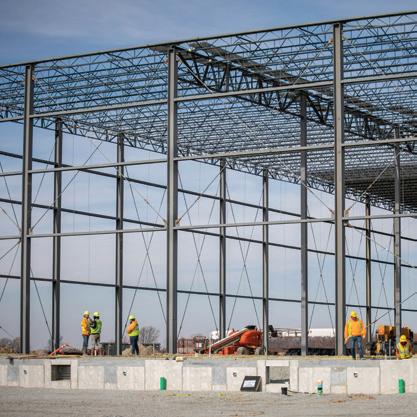
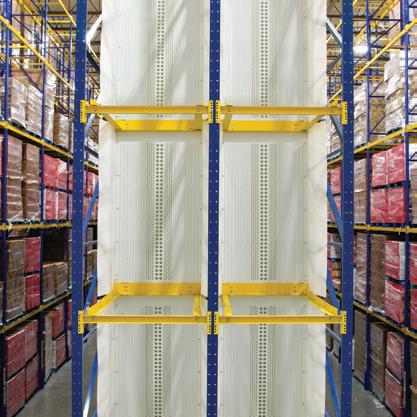
• Incident response planning, ensuring that if an attack happens, downtime and losses are minimized.
In addition, supply chain executives would be smart to recognize the most common potential vulnerabilities in their operations. Given recent cyberthreats involving food companies, there are three common areas that can make your supply chain most vulnerable: Legacy Systems, Third-Party Partners, and IoT Devices.
When it comes to legacy systems, many food manufacturers, retailers and distributors still rely on outdated software that lacks modern security protections. Companies should assess and prioritize risks by inventorying all legacy systems (i.e., old ERP, plant-floor equipment, warehouse control systems), identify which ones connect to the Internet or critical operations, and conduct vulnerability assessments and penetration testing.
Third-party partners: With so many carriers, truck brokers, third-party logistics providers, suppliers, and technology vendors, one weak link can compromise an entire chain.
IoT devices: Sensors, smart equipment, and connected fleets are often deployed without sufficient security protocols.
As food supply chains embrace digital transformation—AI forecasting, blockchain traceability, autonomous logistics—the stakes for cybersecurity will only rise. Companies that integrate cybersecurity into their supply chain strategies are not only protecting their operations, but also securing consumer trust and strengthening resilience in an industry where uptime is critical.

Foremost Farms is a major dairy cooperative owned by hundreds of dairy farm members in seven Midwest states. Cybersecurity to protect the supply chain is crucial to

any business, but it plays a particularly important role in food manufacturing, according to Sean Asp, Vice President of Transformation and Technology at Foremost Farms.
“In the dairy industry, we work with a perishable product in constant supply – milk is always moving off the farm,” says Asp. “As a result, our eight production facilities operate 24/7, 365 days a year. Behind the scenes, a robust technological infrastructure is essential for keeping processes, privacy and production running smoothly, especially in such a fast-paced environment. A cyberbreach could disable all of it and bring Foremost Farms to a complete standstill. We have seen this already occur with many of our peers and other companies within our state.”
Any disruptions can have significant ripple effects on the entire food chain – leading to severe consequences, according to Asp: “Customers rely on our award-winning products to arrive on time and in specific formats for further processing. A hack or technology breakdown could result in food supply shortages, customer dissatisfaction and long-term business challenges.”
“In today’s digital world, everything we do leaves a digital footprint, creating opportunities for disruption and malicious activities,” says Sean Asp, Vice President of Transformation and Technology at Foremost Farms, “However, by staying cybersmart and vigilant, we can significantly reduce the risk of cyberattacks.”
Asp offers insights on significant advancements in cybersecurity in recent years - and how supply chain professionals can implement these to protect themselves online.
First, big data and artificial intelligence (AI) have been critical for Foremost Farms. Asp says his company processes more than 200 million security data points weekly, making around-the-clock protection tools
essential to business success. Adding biometric security measures to multifactor authentication (MFA), such as fingerprint and facial recognition, has significantly enhanced security at the dairy coop. These measures can be advantageous across various market segments of the food and beverage industries, not just manufacturing.
“Currently, the most important thing you can do to protect yourself at work and home is to have an MFA on your work and personal accounts,” advises Asp. “Using new biometric security technologies, such as fingerprint or facial recognition, can improve both the security and ease of use of these key MFA tools.”
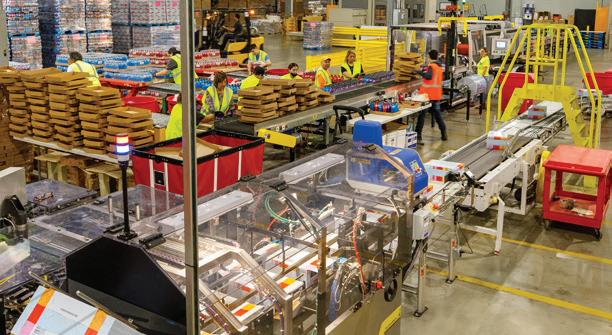
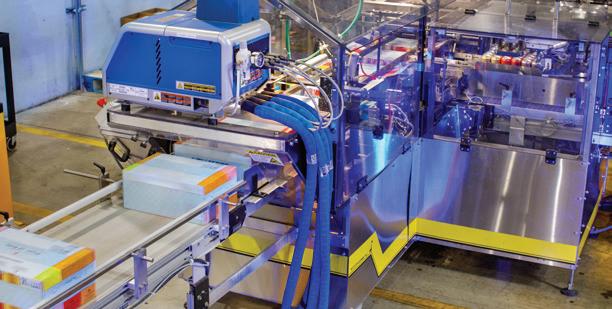
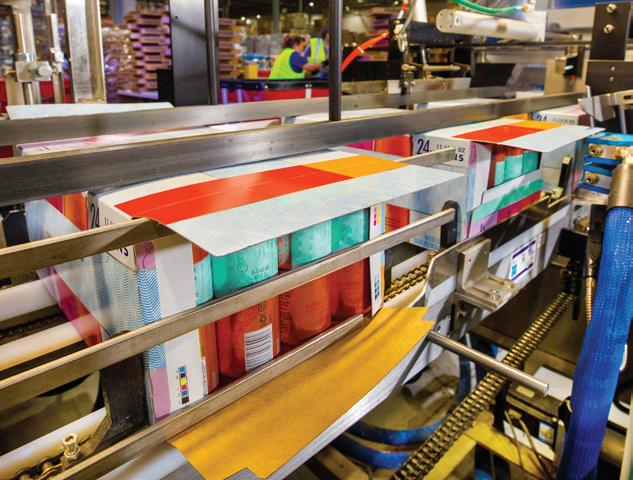


Supply chain strategies are no longer just about keeping products moving. They are about reshaping how companies operate, collaborate, and invest for the future. Several trends have shifted from buzzwords into reality as food companies modernize production through new facilities and advanced automation, forge outside partnerships to expand capacity and reduce costs, and accelerate sustainability goals through alternative-powered fleets.
Together, these initiatives signal a new era in which supply chain innovation is driving both operational resilience and competitive advantage across the food sector. Here are a few examples.
Conagra Brands, a leading food manufacturer, is increasing investments to support supply chain resiliency as part of roughly $450 million earmarked for capital expenditures. Part of this plan
is doing an overhaul of chicken production following the shutdown of a facility due to product quality issues. Conagra aims to significantly boost chicken production over the next 12 months to meet higher-thanexpected demand for new products and reduce the cost of using thirdparty manufacturers.
Mars, Inc., a manufacturer of more than 40 snacking, food and pet brands, plans to grow its U.S.-based manufacturing by investing an estimated $2 billion into operations across the country. This multibillion-dollar investment builds on Mars’ commitment to U.S.-based manufacturing, where 94% of Mars products sold in the U.S. are produced locally in the U.S. In the last five years, the company has invested over $6 billion into U.S. manufacturing.

McLane Company, a major food distributor and partner to some of the largest retail and restaurant brands, has announced a new third-party logistics (3PL) partnership with Circle K, a convenience and fuel retailer. This agreement signals McLane’s continued expansion into 3PL services and positions both for optimized supply chain performance and strategic growth. As part of Circle K’s efforts to enhance control and efficiency within its
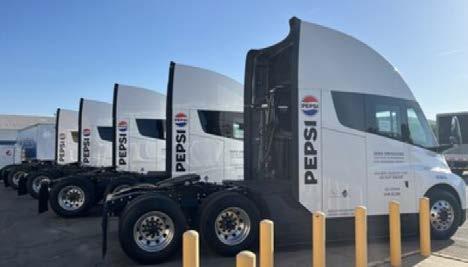
merchandise supply chain, McLane will offer its extensive logistics expertise to support dedicated warehouse and distribution services. This partnership builds on McLane’s 3PL capabilities and aligns with its broader strategy to expand freight and logistics offerings for its customers.
McLane will operate three dedicated distribution centers (DCs) in the Midwest to support Circle K’s merchandise supply chain operations, ensuring efficient inventory management, on-time deliveries, and increased network agility. The DCs will supply approximately 1,600 Circle K and Holiday stores in 14 states with national and private brand packaged snacks, candy, beverages and other convenience items.
Lastly, PepsiCo Beverages North America is expanding its electricpowered fleet across California. Approximately 50 Class 8 Tesla Semi trucks will operate out of its manufacturing and distribution facility in Fresno, Calif., and 75 Ford E-Transit electric vans will stepchange the electrification of its equipment services fleet across the state. The electric vehicle deployment will help the company progress toward its ambitious pep+ (PepsiCo Positive) goal to reach net zero emissions by 2040.

For supply chain pros, the inbound side of their business can be deceptively complex. Vendor compliance, visibility gaps, procurement challenges, and the constant risk of operational disruption make inbound freight one of the hardest areas to control—and one of the most critical to get right. In an industry where margins are tight and speed is everything, even small inefficiencies can cascade into missed deadlines, higher costs, and frustrated partners.
Inbound transportation strategies has emerged as one of the most critical areas of focus – particularly in the food industry. The movement of raw materials, packaging, and ingredients into manufacturing plants and distribution centers is no longer seen as a back-office function—it is now a strategic lever for efficiency, resilience, and cost control.
Supply chain experts in the food industry usually incorporate these goals into their inbound logistics management strategies:
Addressing Rising Costs and Tight Margins. Food companies already operate in an environment of thin margins. Volatile fuel prices, driver shortages, and surging freight rates amplify the financial pressures on inbound logistics. By tightening visibility and control over inbound transportation, executives can negotiate better rates, minimize accessorial charges, and optimize modes. Even incremental savings can directly strengthen profitability.
Reducing Supply Chain Risk. The food supply chain is uniquely vulnerable to disruption—perishable products, strict temperature
requirements, and a reliance on global sourcing create a fragile inbound pipeline. Delays or breakdowns at this stage ripple downstream, leading to production stoppages and out-of-stocks on retail shelves. By focusing on inbound transportation initiatives such as realtime tracking, predictive analytics, and strategic carrier partnerships, food companies can better anticipate and mitigate risks before they impact customers.
Driving Efficiency and Collaboration. Inbound transportation is often fragmented across suppliers, brokers, and carriers. A coordinated approach—whether through dedicated inbound programs, transportation management systems (TMS), or managed partnerships— can consolidate shipments, reduce empty miles, and improve scheduling at plants. This not only cuts costs
but also improves collaboration with suppliers and enhances on-time performance.
Meeting Sustainability Goals. Many food companies have made public commitments to reduce emissions and improve sustainability across their supply chains. Inbound freight is a natural target: optimizing routes, right-sizing shipments, and shifting to intermodal or alternative-fuel carriers reduces carbon footprints. Executives recognize that inbound initiatives not only support ESG reporting but also strengthen brand reputation with consumers and investors.
Unlocking Data-Driven Insights. With the adoption of digital freight platforms and IoT devices, inbound transportation data is more accessible than ever. Supply chain executives are using these insights to uncover bottlenecks, measure carrier performance, and forecast demand more accurately. These initiatives move transportation management from a reactive function to a predictive, value-adding capability.
A national prepared foods manufacturer recently addressed their pain points and streamline their inbound freight process when they turned to Kingsgate Logistics. This non-asset-based third-party logistics provider was able to use its expertise and leverage advanced technology to help this food manufacturer increase visibility, reduce downtime,
and cut costs - transforming their supply chain from a headache to a competitive advantage.
Key components of this inbound freight program designed by Kingsgate Logistics were:
Improved Visibility and Coordination: Enhanced visibility and control, ensuring vendors scheduled deliveries with appointments that ultimately reduced wait times and enhancing dock utilization.
Better Vendor Management: Enforced stricter vendor terms, including penalties for noncompliance, driving better adherence to delivery schedules.
Network Optimization: By aligning inbound and outbound freight, this food manufacturer was able to negotiate better rates for both inbound and outbound shipments, lowering overall transportation costs.
The initial pilot was a success, with zero late deliveries, improved production schedules, and clear visibility from purchase order issuance to product delivery. Employees saved significant time, saving at least two hours each day previously spent chasing down orders and scheduling deliveries. The success of this pilot led to a phased rollout of the solution across the customer’s other plants.
Six primary results to this inbound program include:
1. Zero Line Downtime: For nine months, the food manufacturer experienced no line downtimes, boosting production reliability and reducing costs from disruptions.
2. Improved Vendor Compliance: Vendor compliance improved from 60% to 95% in three months by implementing billbacks and penalties, ensuring more reliable deliveries.
3. Increased Production Accuracy and Fill Rates: Production accuracy and fill rates rose by 8% across seven plants because of better supplier reliability and inventory management.
4. Reduced Waste: A 7.5% reduction in waste resulted from better inventory control, increasing operational efficiency.
5. Cost Savings: The customer saved 13% in landed costs in the first year, equating to nearly $1 million in savings, with potential for higher savings.
6. Improved Vendor Relationships: Streamlined processes and stricter shipping terms improved vendor relationships, fostering collaboration and long-term partnerships.
For food industry executives, inbound transportation is no longer just about trucks showing up on time. It is about ensuring product availability, protecting brand trust, and securing competitive advantage in a complex, high-stakes market. Those who master inbound strategies will not only lower costs but also build the resilience and agility their supply chains demand.
Inbound transportation strategies has emerged as one of the most critical areas of focus – particularly in the food industry. The movement of raw materials, packaging, and ingredients into manufacturing plants and distribution centers is no longer seen as a back-office function—it is now a strategic lever for efficiency, resilience, and cost control.
From ship to shore to store, Matson Logistics serves food and beverage manufacturers, distributors, and retailers with: Transportation
• Port Drayage
• FCL and LCL Highway
• Intermodal Rail Distribution
• Inventory Management
• Transload
• Crossdock
• Pick and Pack
Value-Added Services
• Tier 1 WMS
• Club Store and Custom Packs/ Pallet Displays
• Tray Cuts, Gift Boxes, and Packaging
• Kitting and Bundling
• Barcode Labels and Price Tickets
• End Cap and Power Alley Promotions
• DtC and E-Commerce Fulfillment


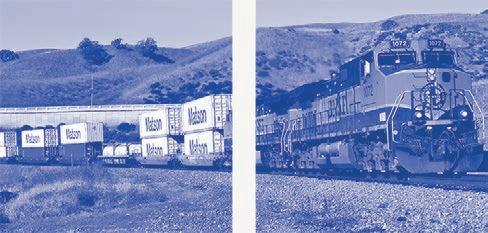
Oakland and Savannah Logistics Campuses Big
• 1.6 million sq. ft. of both Contract and Public Warehouse Operations
• Round-the-Clock Operations, including Receiving and Dispatch Safe
• Gated and Monitored Trailer Yard; 24/7 Guard Service
• ESFR Sprinkler System
• 100% RF Wireless Coverage
• Rigorous QA and Safety Management Certified
• FDA Registered and Food-grade Compliant
• NSF Supplier Certified and Organic Farm Certified
• California ABC Type 14 License for beer, wine, and spirits
• Exclusive Foreign Trade Zone operators
Intermodal & Highway
Daniel Paulsen 630 203 3544
Warehousing & Distribution
John Feehery 562 343 0190
International Supply Chain
Michael Johnson 908 334 2849
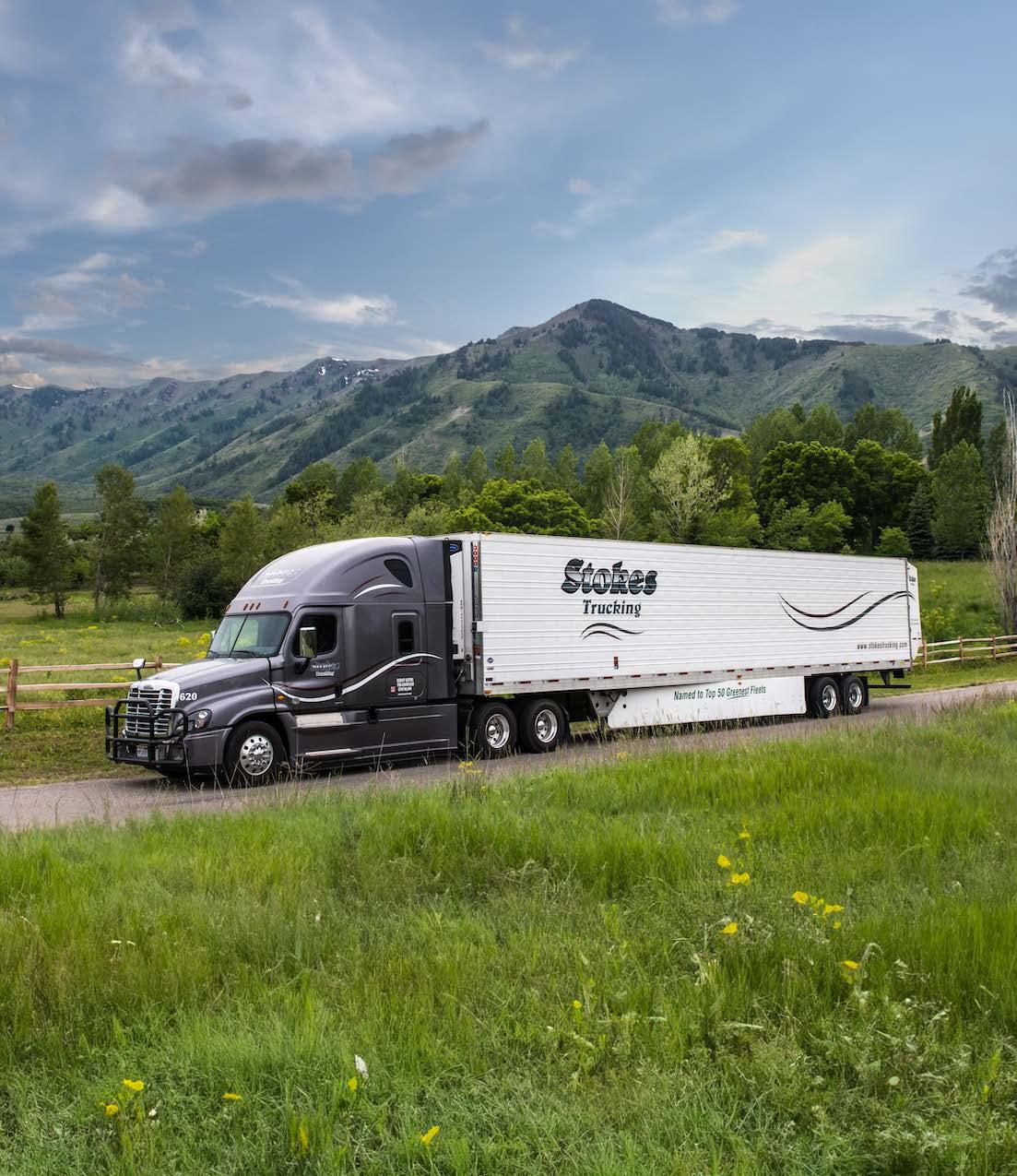
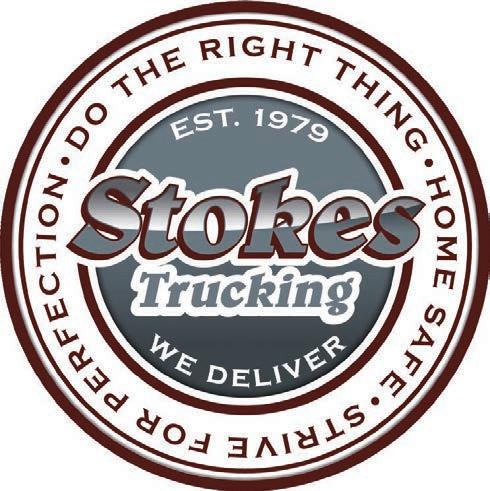

Welcome to the 2025 Warehousing & Distribution Buyer’s Guide! This resource is published by FoodChainDigestto help supply chain professionals find potential providers of valuable services, including warehousing, distribution, cross-docking, pallets, materials handling, equipment, inventory control, omnichannel, technology innovators, robotics, e-commerce, WMS, site selection, YMS, sustainability, packaging, consultants, and related associations. All companies listed in this Resource Guide are paid advertisers and are not in any way officially endorsed by Food Shippers of America (FSA).

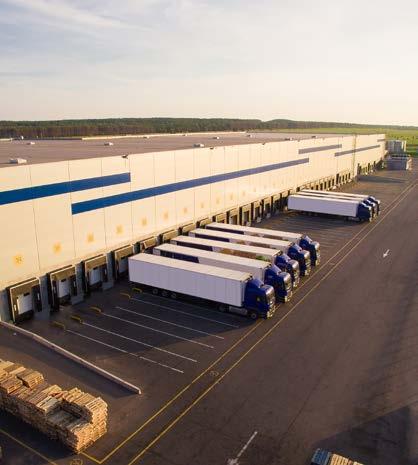

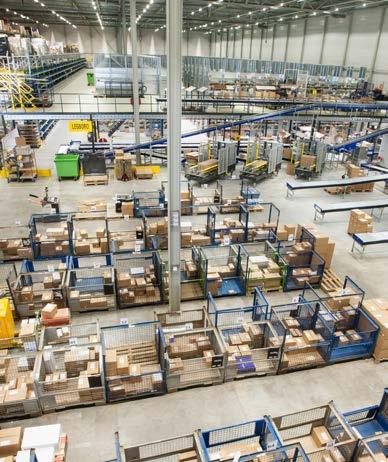
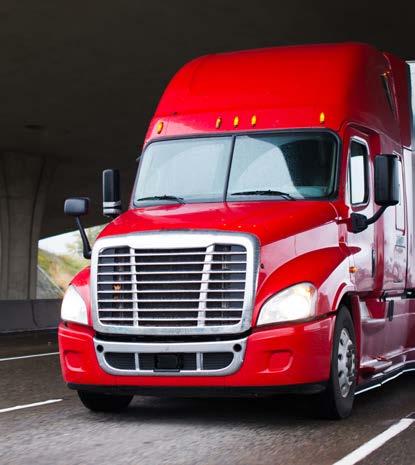
Acme Distribution, Inc. www.acmedistribution.com
303-739-2126
James_Lee@acmd.com
Acme Distribution specializes in food-grade warehousing and logistics, helping you streamline your supply chain while focusing on growing your brand. With over 78 years of expertise, strict safety standards, and advanced technology, we deliver cost-effective, flexible solutions that ensure freshness, compliance, and on-time delivery. Efficiency and reliability.
Alliance Shippers alliance.com
Offers comprehensive logistics solutions, including temperature control, intermodal, oceans and air transportation, over-the-road and freight brokerage.
AML amltd.com
800-648-4452
sales@amltd.com

Since 1983, AML has been a trusted provider of barcode data collection solutions across many industries including Food and Beverage suppliers and distributors. Our mission is simple: to deliver high-performance, user-friendly, and cost-effective products. AML’s barcode-centric product solutions include mobile computers, stationary kiosks, wearable computers, and vehicle-mounted computers. Powered by Android™, AML devices are compatible with popular WMS and ERP software applications. From initial testing to device rollout and ongoing support, our experienced team is with you every step of the way. Proudly designed, built, and serviced in the USA, AML products are made to deliver exceptional value.
Aqua Logistics LLC
drive-aqua.com
937-985-2782
mrich@rfpmg.com

Bulk Food-Grade Transportation. A trusted provider of bulk food-grade freight transportation across the continental U.S. With years of experience and a deep understanding of industry requirements, we deliver safe, sanitary, and on-time service to food shippers. Our team is known for responsive communication, clean and compliant equipment, and a strong track record of dependability and professionalism. We tailor flexible solutions to meet your volume, scheduling, and compliance needs. When you’re moving bulk food-grade products, Aqua delivers the quality and reliability your supply chain demands.
Bettaway bettaway.com
Leverages its experience, data, and technology to deliver smart, comprehensive, supply chain solutions.
Capital Express Lines, Inc
capitalexpresslines.com
916-305-5358
andy@capitalexpresslines.com
Capital Express Lines, Inc. is a family-owned and operated carrier specializing in Full Truckload and custom dry warehousing solutions. With over 100 power units and 350 plated trailers, we proudly serve the western region of the USA, delivering reliable, flexible, and customer-focused transportation and storage services.
Catch-Up Logistics catchuplogistics.com
A customer oriented logistics company that has been providing dedicated service since 1995.
Coastal Cold Storage, LLC coastalcarriers.com
636-528-8988
sales@coastalcarriers.com

Coastal Cold Storage delivers trusted, state-of-the-art cold chain solutions designed to keep your products safe, fresh, and moving. Located in Foristell, MO—just outside St. Louis—our facility is strategically positioned to reach over 70% of the U.S. population within a single day’s drive. Backed by our nationwide refrigerated fleet, we integrate storage and transportation to reduce costs, shorten transit times, and improve efficiency. With modern WMS technology and a family-owned team committed to excellence, we provide reliable, flexible, and scalable solutions that help you grow. Coastal—where cold storage meets speed, reach, and trusted logistics.
Continental Express continentalexpressinc.com
Truckload carrier and full-service logistics company specializing in the transport of temperature-controlled and dedicated-route freight.
DD Freight Services
ddfreightservicesllc.com
With a team of dedicated and preferred carriers, we can handle time critical shipments with guaranteed pickup and delivery.
Doug Andrus Distributing LLC dougandrus.com
Strives to be an organization that provides a total logistics service, not just another trucking company.
DTS Logistics
dtslogistx.com
Non-asset-based domestic freight carrier partnerships enable broad geographic reach and exceptional depth of service offerings.
Dynamic Logistix dynamiclogistix.com
End-to-end logistics solution that manages and tracks your shipments, automates status updates and reduces risk.
First Logistics
firstlogisticsllc.com
708-597-8700
info@firstlogisticsllc.com
Need food-grade warehousing that actually works for you? With 1.8M+ sq. ft. across 5 Chicagoland facilities, First Logistics delivers tech-powered, tailor-fit 3PL solutions — and direct access to decision-makers. No red tape. Just results. Let’s talk!

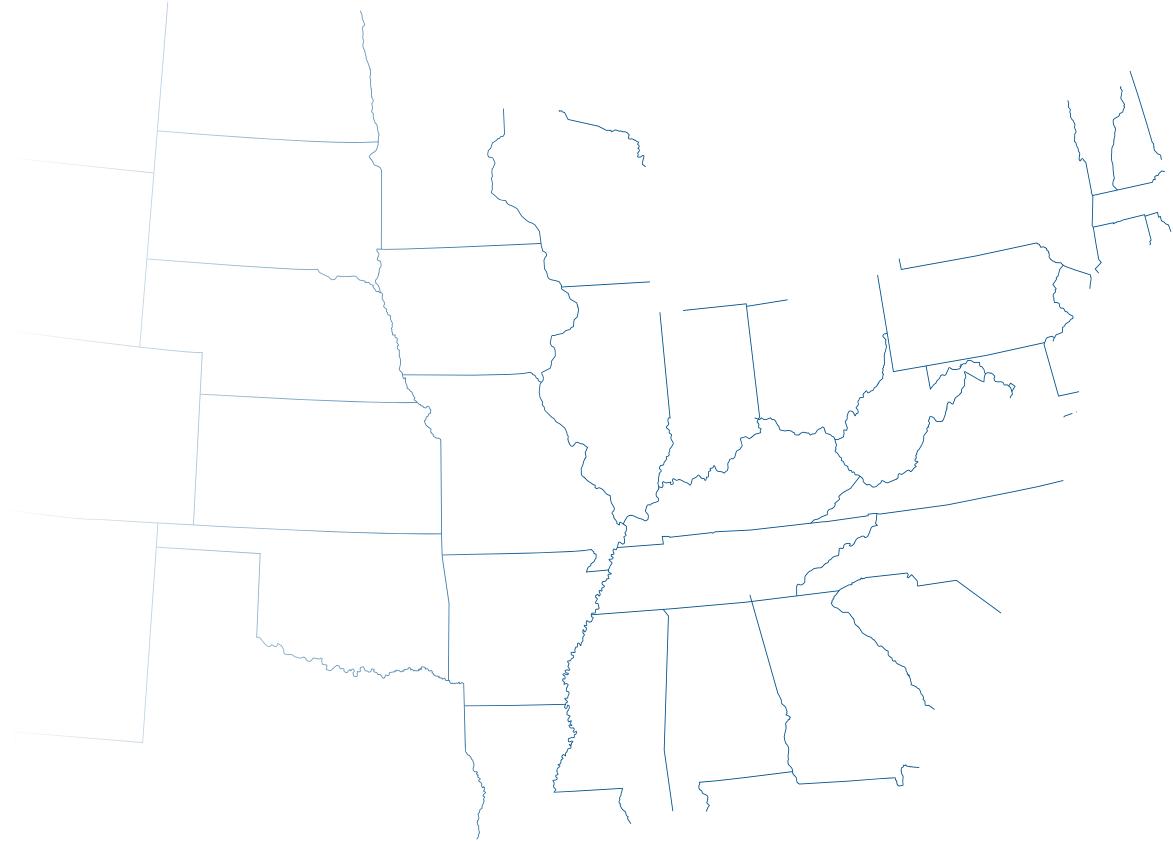


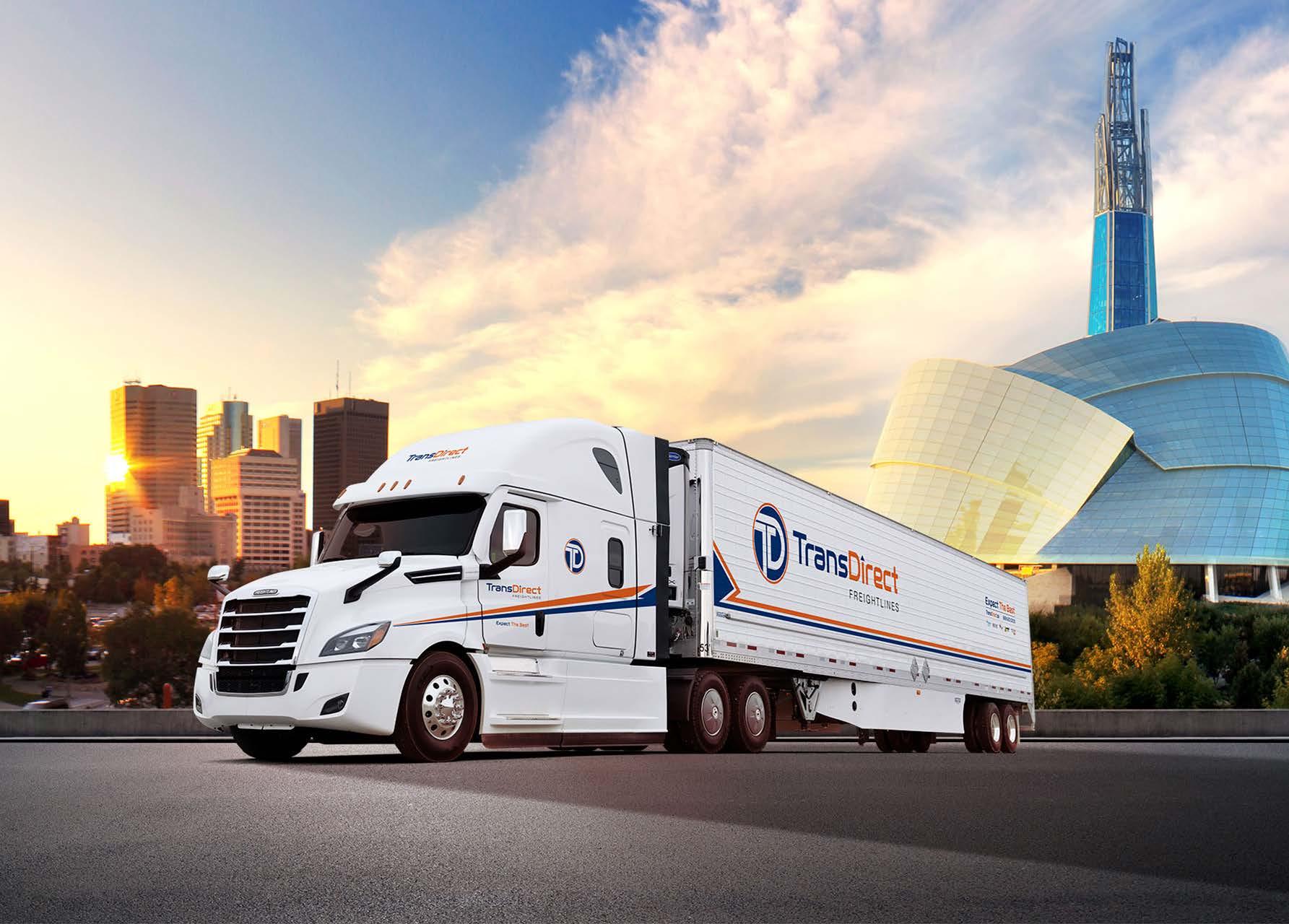

Flexe Flexe.com
855-733-7788
hello@flexe.com

A dynamic business requires a dynamic supply chain. Flexible warehousing infrastructure provides access to over 3,000 locations without the burden of long-term leases. Using a model of fractional warehousing and transactional pricing, companies can instantly scale storage space up or down to match fluctuating demand. This model allows businesses to go live in weeks, not months, through a simple and speedy setup process. Expand reach by easily finding space near customers to store extra inventory or handle large items. Companies only pay for the space and resources they use, eliminating wasted money on underutilized warehouses.
Forza Logistics Group forzalogisticsgroup.com
317-397-0057
Nick@forzalogisticsgroup.com

Forza Logistics Group is a full-service freight brokerage specializing in temperature-controlled full truckload (FTL) shipping. The company focuses on providing reliable, transparent, and custom-fit logistics solutions for perishable supply chains. With a strong emphasis on proactive communication and operational excellence, Forza helps shippers manage complex logistics challenges efficiently. The team is committed to building trusted partnerships and delivering tailored solutions that meet each customer’s unique needs. By simplifying freight management and keeping shipments moving smoothly, Forza ensures a seamless experience for companies operating in the highly demanding cold-chain and perishable markets.
FreightEx gofreightex.com
214-507-3133
Nick.L@gofreightex.com

FreightEx is a family-owned, asset-based trucking company and fullservice logistics brokerage serving the U.S. and Canada. With 50+ trucks, 120+ trailers, and a trusted carrier network, we specialize in reefer and dry van transportation. Food and beverage companies form the core of our business, trusting us to deliver their products with care, reliability, and precision. Founded in 2013 on Simonson Station Stores’ 90+ year service tradition, FreightEx delivers FTL and LTL solutions with precision, care, and family values. The FreightEx Way.
GENPRO Inc
genproinc.com
Solutions to fulfill all of your delivery needs and offer complete visibility throughout your shipments journey.
GSM Transport
gsmtransport.com
Provides fast customer service, clear communication, up-to-date tracking and profitable lanes. Specializes in overweight drayage.
Helix Logistics helixlogistics.com
708-246-7000 sales@helixlogistics.com

Since 2008, Helix Logistics has delivered reliable shipping solutions nationwide. Our services include flatbeds, dry vans, and refrigerated equipment, offering full truckload (FTL), partial load, and are one of the largest less-than-truckload (LTL) providers in the industry. Our refrigerated equipment ensures optimal conditions for transporting temperature-sensitive goods. From food-grade products to electronics and raw materials, we securely handle a wide range of items. Committed to flexibility, reliability, and customer satisfaction, Helix Logistics tailors its services to meet the unique needs of industries across the country, providing efficient and dependable deliveries every step of the way
Hermann Total Distribution Service hermanntds.com
Family owned and operated business carrying on a tradition of going the extra mile to deliver on all of your expectations.
Interstate Cold Storage, Inc. interstatecoldstorage.com
260-428-2505 contactus@interstatecoldstorage.com

Interstate Cold Storage is a leader in cold storage with a network of facilities located across the Mid-West. For over 30 years, our family-owned company has been committed to providing cost-effective refrigerated services and outstanding customer service. Each location has temperature ranges from -15°F to +60°F, providing the flexibility required to accommodate your specific needs. With five strategic locations, nearly 22 million cubic feet of refrigerated space, and easy highway and rail access, Interstate Cold Storage takes great pride in providing solutions for your business.
JT Logistics
jtlogistics.com
The choice of customers who depend on a robust and agile supply chain for their success.
KAG Food Products
thekag.com/food-products/ 800-462-0770 sales@thekag.com

KAG Food Products, a division of Kenan Advantage Group (KAG), specializes in the secure and timely movement of food-grade products nationwide. Providing multimodal solutions, we deliver to numerous end markets hauling products such as edible oils, sweeteners, dairy, agricultural supplies, pet food ingredients, dry bulk and much more. As a SmartWay Excellence Award Winner, we adhere to stringent trailer cleaning and product integrity processes focusing on safety, service, and compliance. Backed by KAG’s 7,500+ professional drivers, a fleet of 7,600 trucks, 1,700 specialized food products trailers and a national network of over 300 strategically located terminal/satellite locations, KAG Food Products is here to safely move your food products forward!
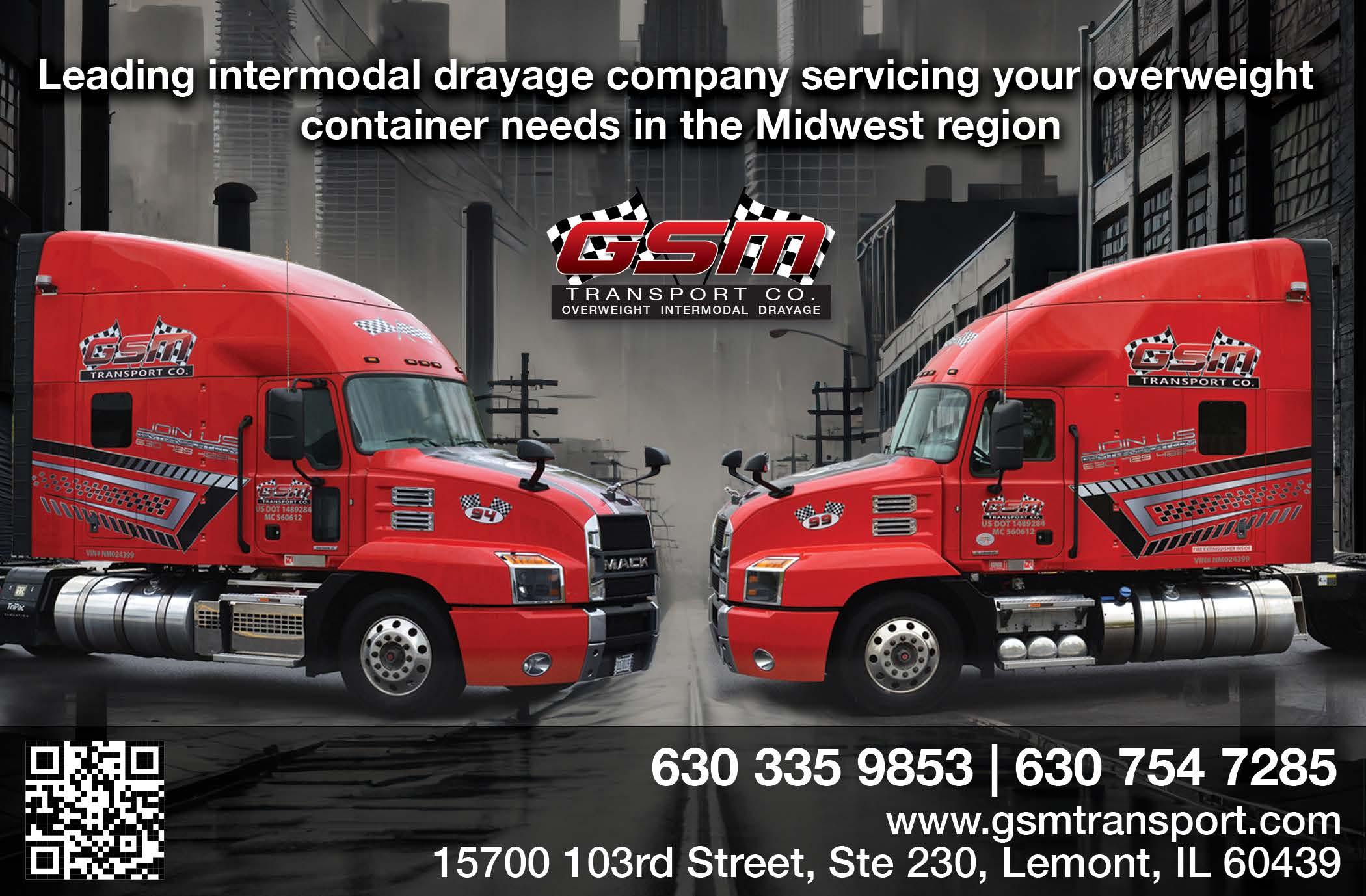


Kingsgate Logistics
kingsgatelogistics.com
513.874.7447
sales@kingsgatelogistics.com

Founded in 1986, Kingsgate Logistics is a family-operated third-party logistics provider known for its exceptional customer service and trusted industry partnerships. At the heart of Kingsgate’s operations is a deep commitment to building lasting relationships through transparency, responsiveness, and personalized support. Their proprietary technology enhances communication and visibility, while keeping the human element front and center. Whether managing a single shipment or an entire supply chain, Kingsgate delivers tailored solutions backed by real people who care. Kingsgate Logistics is more than a provider;they’re a dependable extension of your business, focused on helping you succeed.
Kottke Trucking
kottke-trucking.com
After eight decades of being in business, has established itself as an eminent presence in the transportation industry.
Legend Transportation newlegendinc.com
Provides more than 1,000 tractors and more than 4,000 plated trailers throughout the Western Region.
Leonard’s Express
leonardsexpress.com
585-924-8140
contact@leonardsexpress.com
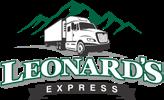
Leonard’s Express is a family-owned, asset-based transportation provider located in Farmington, New York, with a nationwide footprint of offices throughout the United States. From refrigerated and dry truckloads to warehousing and brokerage, we have multifaceted expertise and a diverse network of connections to streamline your logistics under one trusted partner. With our modern fleet of 650 tractors and 900 dry and cold storage trailers, experienced drivers, dedicated staff, and cutting-edge logistics technology, we tailor hassle-free solutions to fit our customers’ specific supply chain needs. You can rely on us for dependable, diversified, and creative solutions that are responsive and cost-effective.
LST Group LLC
www.lstgroupllc.com
813-728-3846
pthomasson@lstgroupllc.com
Trusted by foodservice, produce, and grocery retailers across North America, LST Group delivers food & beverage logistics with unmatched reliability and industry expertise. From foodservice distribution to time-sensitive grocery shipments, our focus on safety, proactive communication, and tailored solutions makes us the trusted partner shippers count on.
Matson Logistcs matsonlogistics.com
866-628-7669
hellologistics@matson.com

Matson Logistics serves food and beverage manufacturers, distributors, and retailers with multimodal freight transportation, warehousing, distribution, value-added solutions, and supply chain services throughout Asia and North America.
Certified for F&B
FDA Registered and Food-grade Compliant • NSF Supplier Certified and Organic Farm Certified • California ABC Type 14 License for beer, wine, and spirits • Exclusive Foreign Trade Zone operators
Transportation
Port Drayage • FCL and LCL Highway • Intermodal Rail
Distribution and Fulfillment
Transload • Crossdock • Pick and Pack
Value-Added Services
Club Store and Custom Packs/ Pallet Displays • Tray Cuts, Gift Boxes, and Packaging • End Cap and Power Alley Promotions • DtC and E-Commerce Fulfillment
READY-2-XECUTE ready2xecute.com
Indianapolis-based logistics partner hyper-focused on doing whatever it takes to ensure your business runs smoothly.
RLS Logistics rlslogistics.com
3PL company offering a diverse list of cold chain solutions for frozen and refrigerated food manufactures.
Roam Logistics Inc roamlogistics.com
775-410-6500
Indy@roamlogistics.com
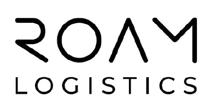
At Roam Logistics, we deliver more than freight—we provide trust. Founded in Reno, NV in 2023, our brokerage was built to bridge the gap between large, impersonal brokerages and service-focused startups. We specialize in refrigerated and dry shipments, ensuring food shippers receive reliable, on-time deliveries backed by vetted carriers. In an industry where profits often outweigh people, we prioritize the human touch, clear communication, and strong relationships. With a foundation of integrity, expertise, and technology, Roam Logistics provides peace of mind—so you know your products and your reputation are in the best hands.









Ruan Transportation Management Systems
ruan.com
866-782-6669
kmessmer@ruan.com

Ruan delivers Integrated Supply Chain Solutions through Dedicated Contract Transportation, Managed Transportation, and Value-Added Warehousing services for our customers. As a family-owned asset-based third-party logistics provider, we combine our asset-based and nonasset-based capabilities to create tailored solutions that drive supply chain efficiency and value through advanced technology, 90+ years of industry expertise, and our trusted team members. We start by deeply understanding our customers’ business, becoming an extension of their team, and creating a shared vision of success. By partnering with Ruan, you’ll know your freight is in good hands by leaving it to our reliable team of logistics professionals.
Schulz Logistics
schulzlogistics.com
Delivering seamless solutions and unmatched personal care in every freight journey.
Spartan Logistics
spartanlogistics.com
614-497-1777
nharmon@spartanlogistics.com

Spartan Logistics is a family-owned, asset-based third-party logistics provider, specializing in food-grade warehousing and distribution. With over four million square feet across 23 warehouse locations in the Midwest

and South, we provide safe, clean, and compliant storage, with specific expertise in food, beverage, and paper products. Our services include warehousing, cross-docking, inventory management, order fulfillment, and lot tracking to ensure product integrity. We own our facilities, trucks, and equipment, ensuring reliability, flexibility, and cost control for our customers. For 37 years, Spartan Logistics has delivered dependable supply chain solutions that help food shippers move products efficiently from production to consumption.
Spoerl Trucking Spoerltrucking.com
262-569-7718
solutions@spoerltrucking.com


Delivering food and beverage shipments with precision and care. Our temperature-controlled fleet safeguards freshness and quality from start to finish. We also excel in dry van, TL (truckload), and LTL (less-thantruckload) with adaptable capacity, fast transit times, and end-to-end visibility. Experienced drivers, secure trailers, and meticulous recordkeeping ensure product integrity and accurate temperature every step of the way. Count on on-time pickups, proactive communication, and dedicated support from production to distribution. Trust us to protect your brand, extend shelf life, and keep your supply chain reliable and efficient.
Stokes Trucking stokestrucking.com
Specializes in providing regional transportation services for dry goods and refrigerated items to customers.
Sun Transportation Systems Inc ststrucks.com
877-874-0063
twhite@ststrucks.com

Founded in 2006, long standing mid-sized asset-based carrier that has since become a Tier 1 carrier within the food and beverage industry. Certified: CAMSC Diversity Supplier;C-TPAT;FAST;SmartWay and EcoVadis. With terminals located in USA and Canada, we offer both dry van and reefer service. Licensed to run Interstate USA, Cross Border CDA/USA/MX, Intra-Canada. Fleet is fully tracked through live GPS/Geofencing with EDI capabilities helping to achieve Four Kites Premier Carrier status. Our business has been built primarily on referrals. We are very selective with who we deal with and what we commit to, building trust through our service.
Tippmann Group tippmanngroup.com
260-490-3000
tippsales@tippmanngroup.com





Tippmann Group is a unique combination of two companies, Tippmann Construction and Interstate Warehousing, which are dedicated to safe and efficient design, construction and operation of multi-temperature food processing and distribution facilities for the food industry. Interstate Warehousing is the 4th largest PRW company in the United States with SQF certified facilities in key markets around the U.S. and more than 130,000,000 cubic feet of cold storage space.As a design/build company, Tippmann Construction has been in business since 1968, and our refrigeration expertise and owner/operator experience make Tippmann Group your single-source provider for all your temperature-controlled facility needs.
Transdirect Freightlines transdirect.ca
Innovative cold chain specialists bringing asset-based, tech-infused CAN & U.S. transportation solutions for your dry & temp-sensitive freight.
Uline uline.com
The leading distributor of shipping, industrial and packaging materials to businesses throughout the U.S.
United Freight Solutions ufs.group
Ocean freight services from handling Full container loads to LCL, Buyers consolidation, breakbulk cargo, project cargo and ODC cargo transportation.
Verst Logistics verstlogistics.com
800-978-9307
sales@verstlogistics.com

Verst extends expertise, capabilities, and reach of our clients by providing logistics solutions for warehousing, omnichannel fulfillment, contract packaging, shrink sleeve labeling, contract logistics, transportation management, and freight brokerage. A family-owned company for almost 60 years, we combine industry and technical expertise with a commitment to seamless customer relationships to help achieve goals.
asi_halfpgFCD_E3_2025_final_• 9/8/25 12:20 PM Page 1
WHY Logistics why-logistics.com
908-274-0333
sales@why-logistics.com

From full truckloads, multi-stop truckloads and LTL to freight consolidation, customized transportation solutions and distribution network analysis, WHY Logistics has you covered. Our success comes from crafting tailored transportation and distribution strategies, fit to what you do and how you do it. With partners across the United States, we work with you to identify the right partners whether your products are Dry, Refrigerated or Frozen. With backgrounds on all sides of transportation & warehousing, including the shipper side, we look out for your best interest, because we’ve been in your shoes.
YMX Logistics ymxlogistics.com
1-800-558-9200 info@ymxlogistics.com

Enterprise yard operations remain one of the supply chain’s most complex and overlooked links. YMX is the trusted national yard logistics partner for the world’s largest shippers, delivering integrated yard logistics operations, spotting and shuttling services, and yard management technology across the country. Whether at a single facility or across your network, YMX drives transportation and warehouse operations synchronization, ensures service consistency, and fuels continuous improvement through proprietary technology, data-driven processes, and high-performing equipment and teams. The result: improved safety, reduced emissions, and optimized labor and asset performance, transforming the yard into a fully connected, strategic part of your operations.
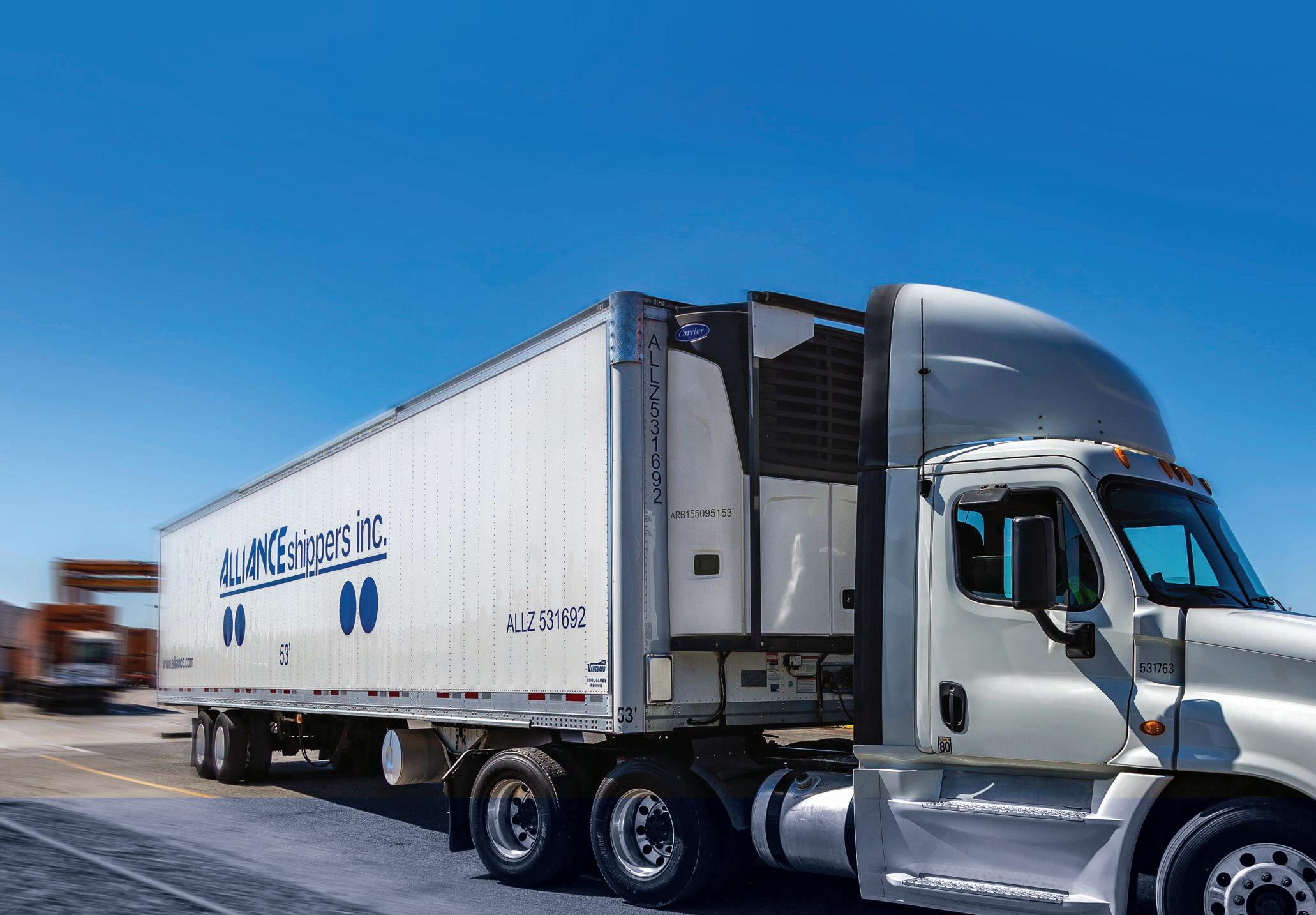
At Alliance Shippers Inc., we understand each customer has unique supply chain needs. That’s why we customize your logistics plan. Whether it’s by land, sea or air, we use our knowledge and expertise to arrange the best solution for you.
To find out more: www.alliance.com

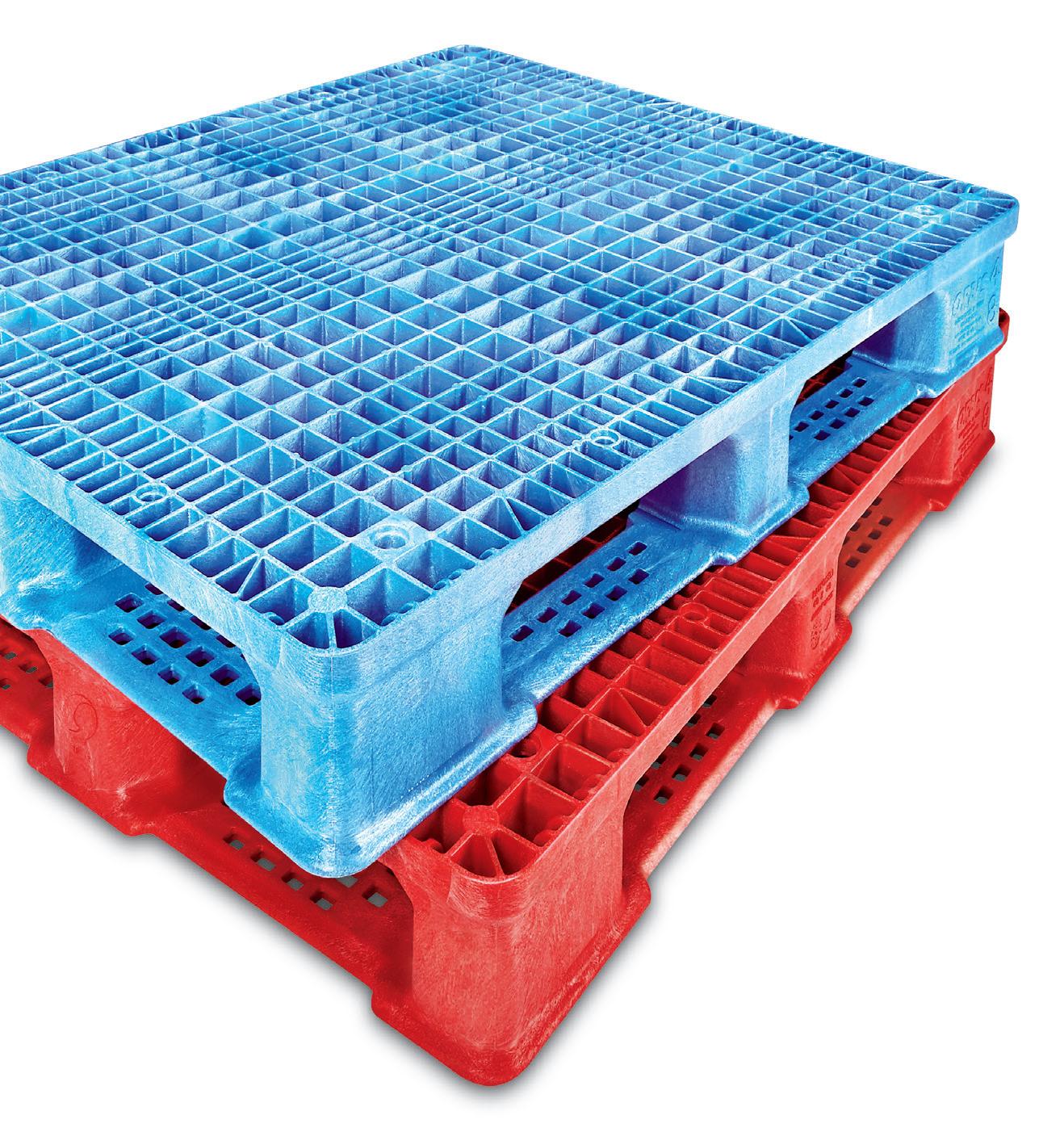

Scan the QR code and we'll send you a sleeve of Pro V1s (while supplies last)

